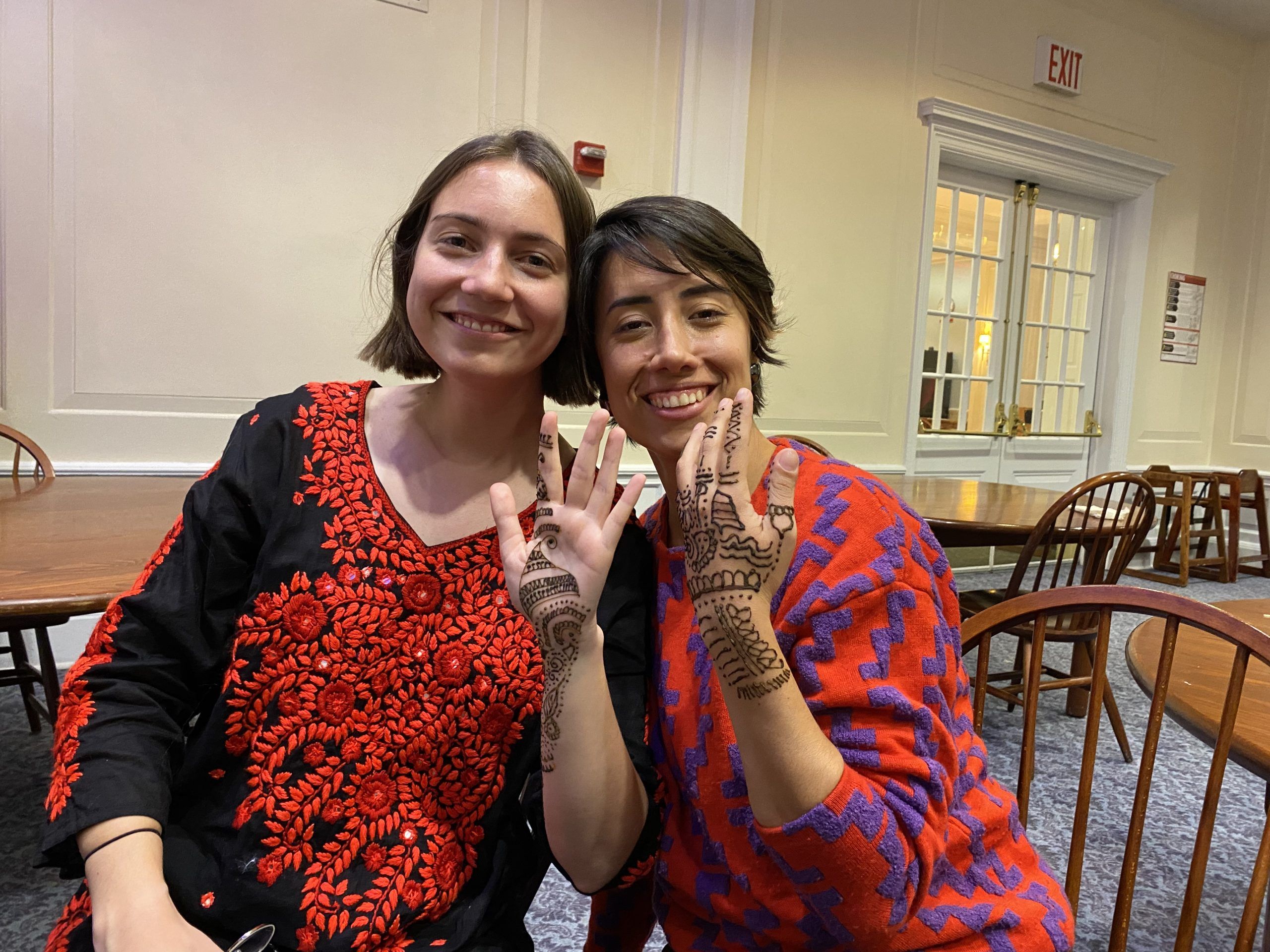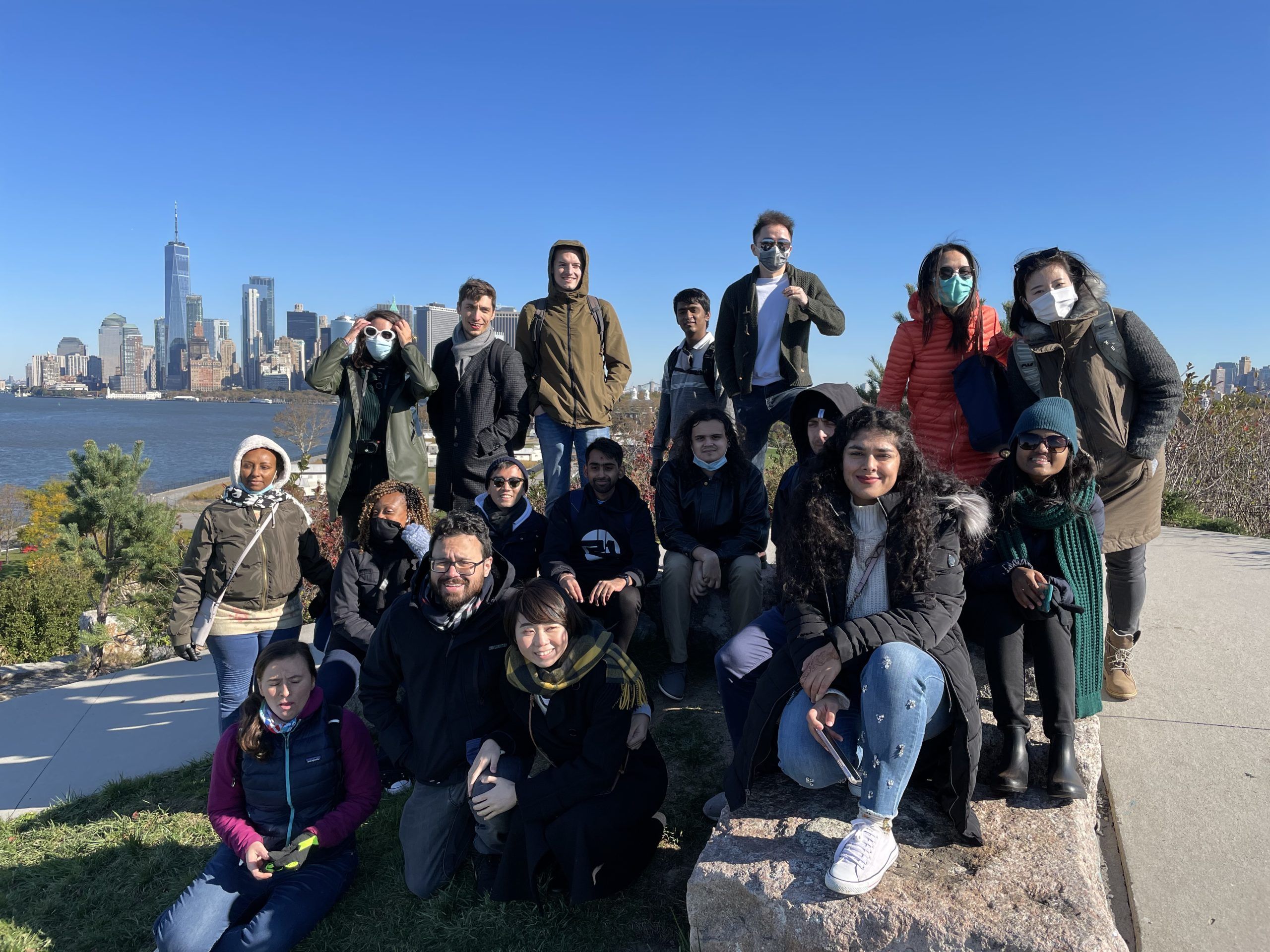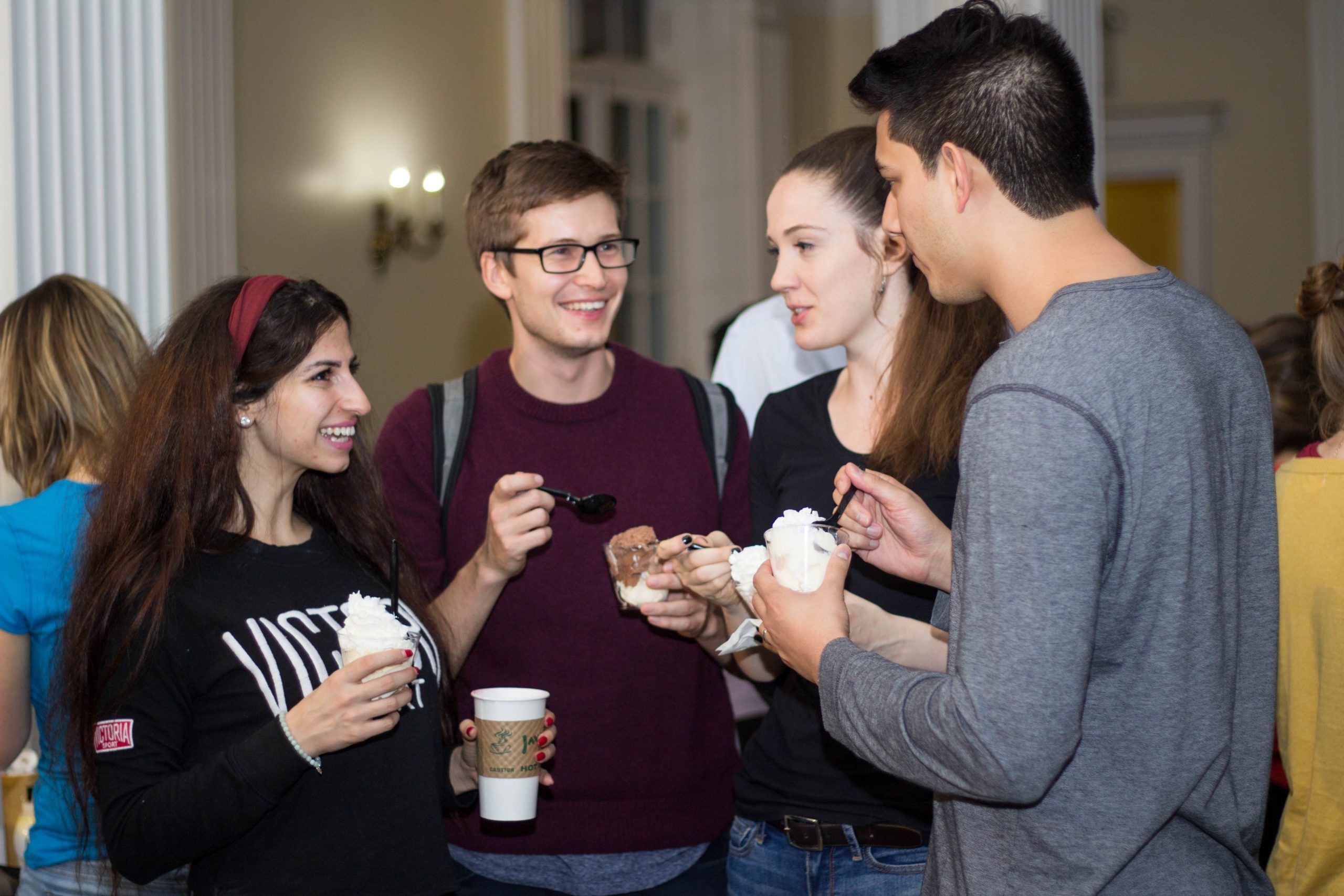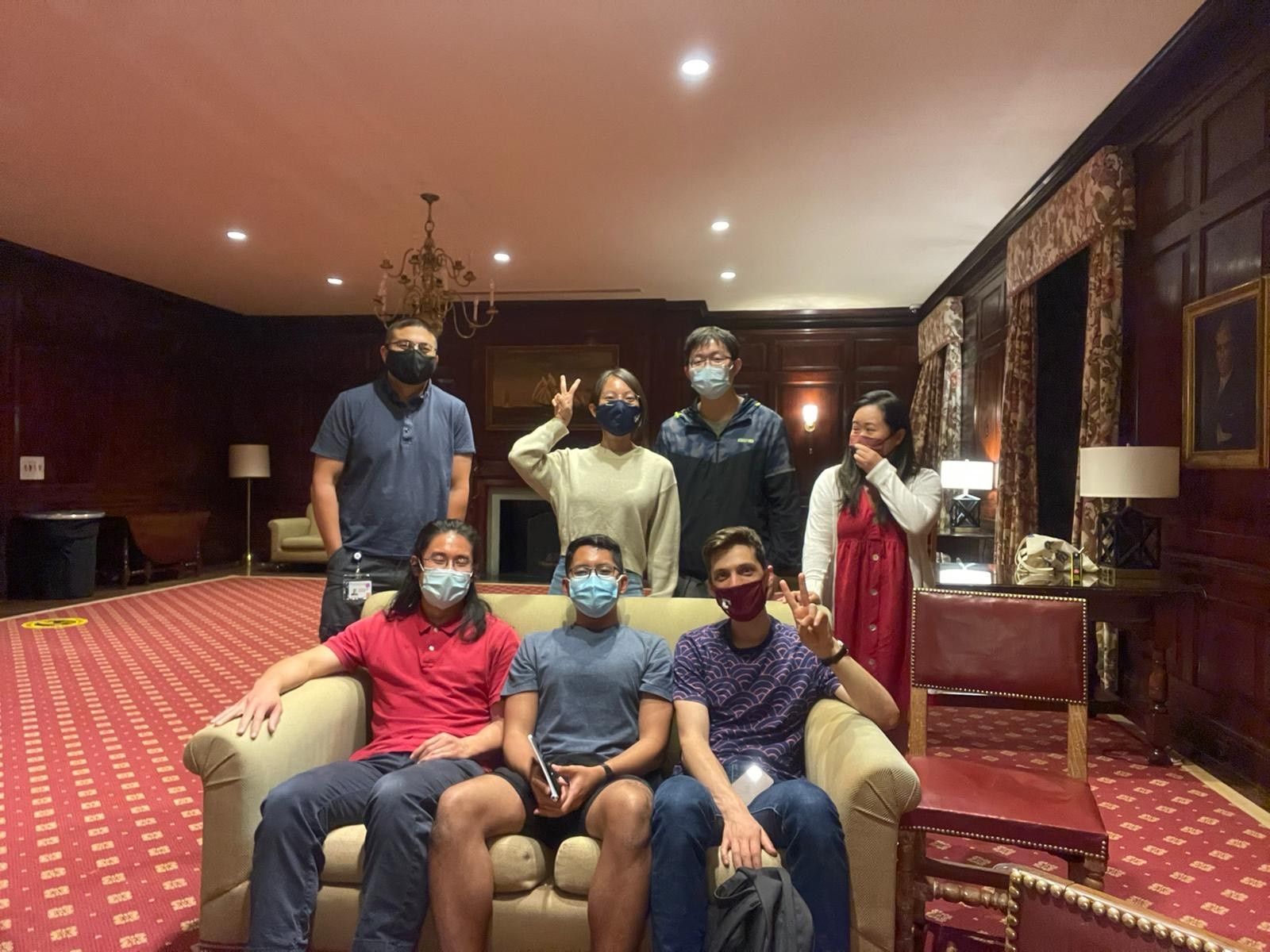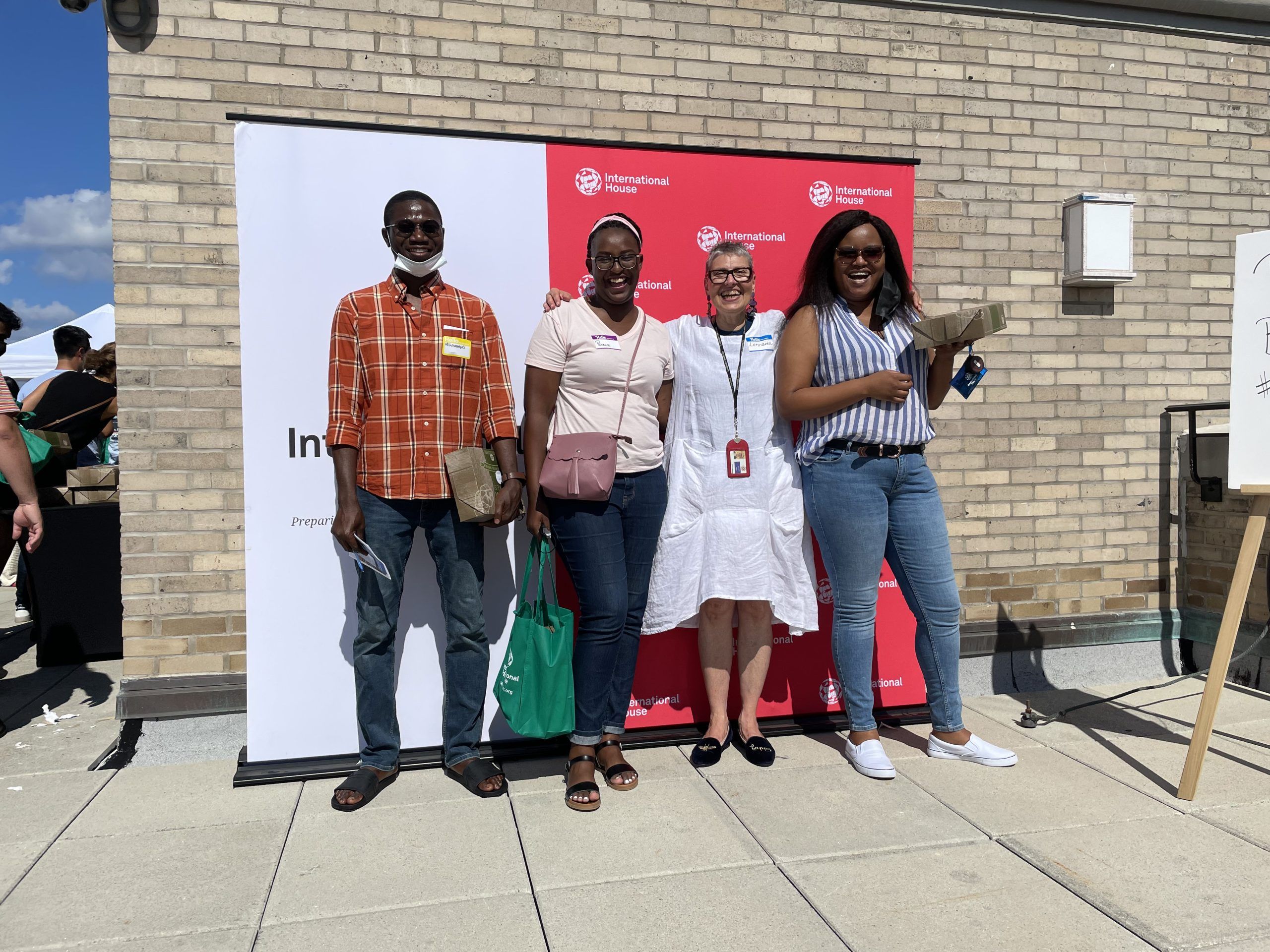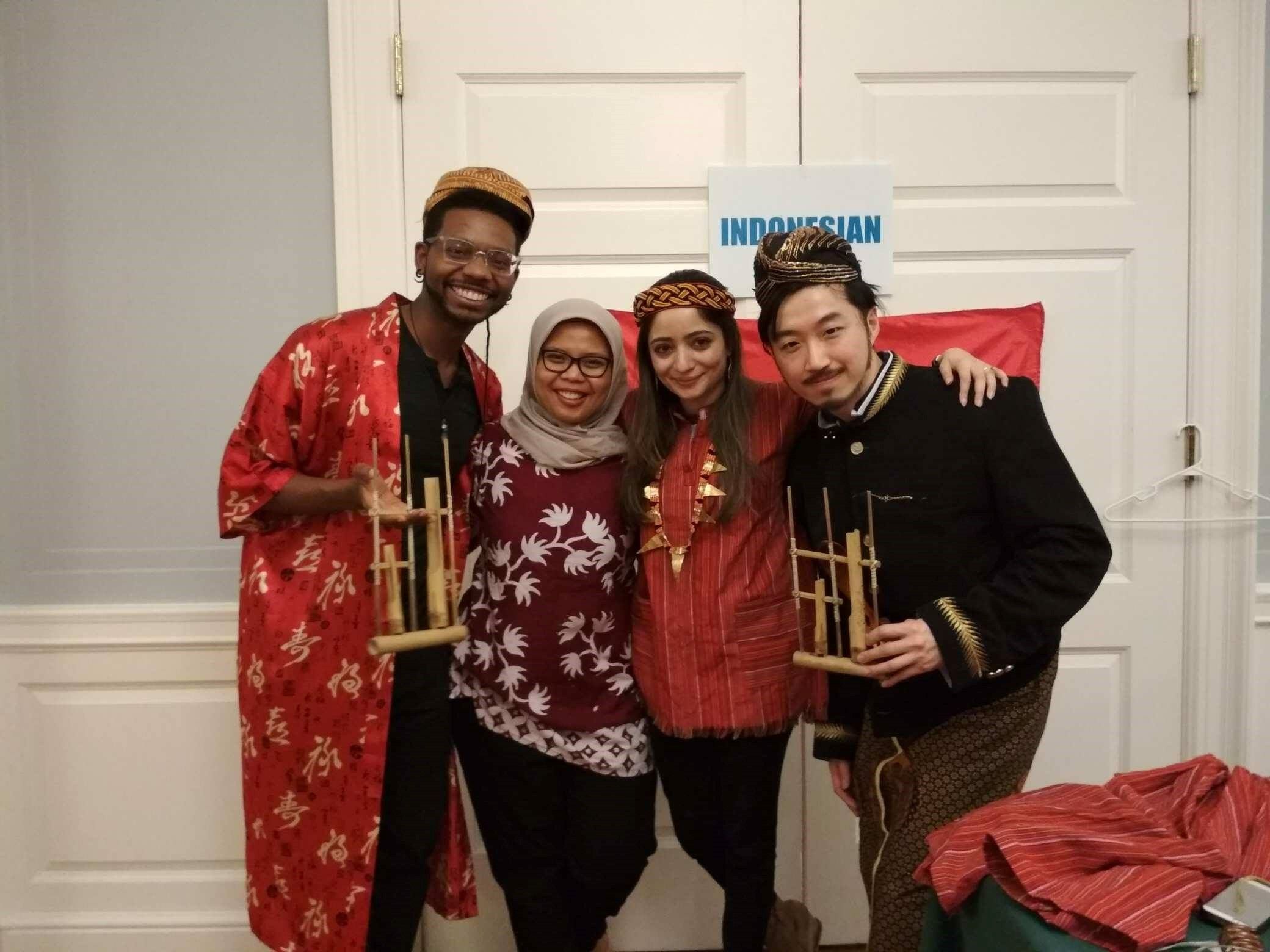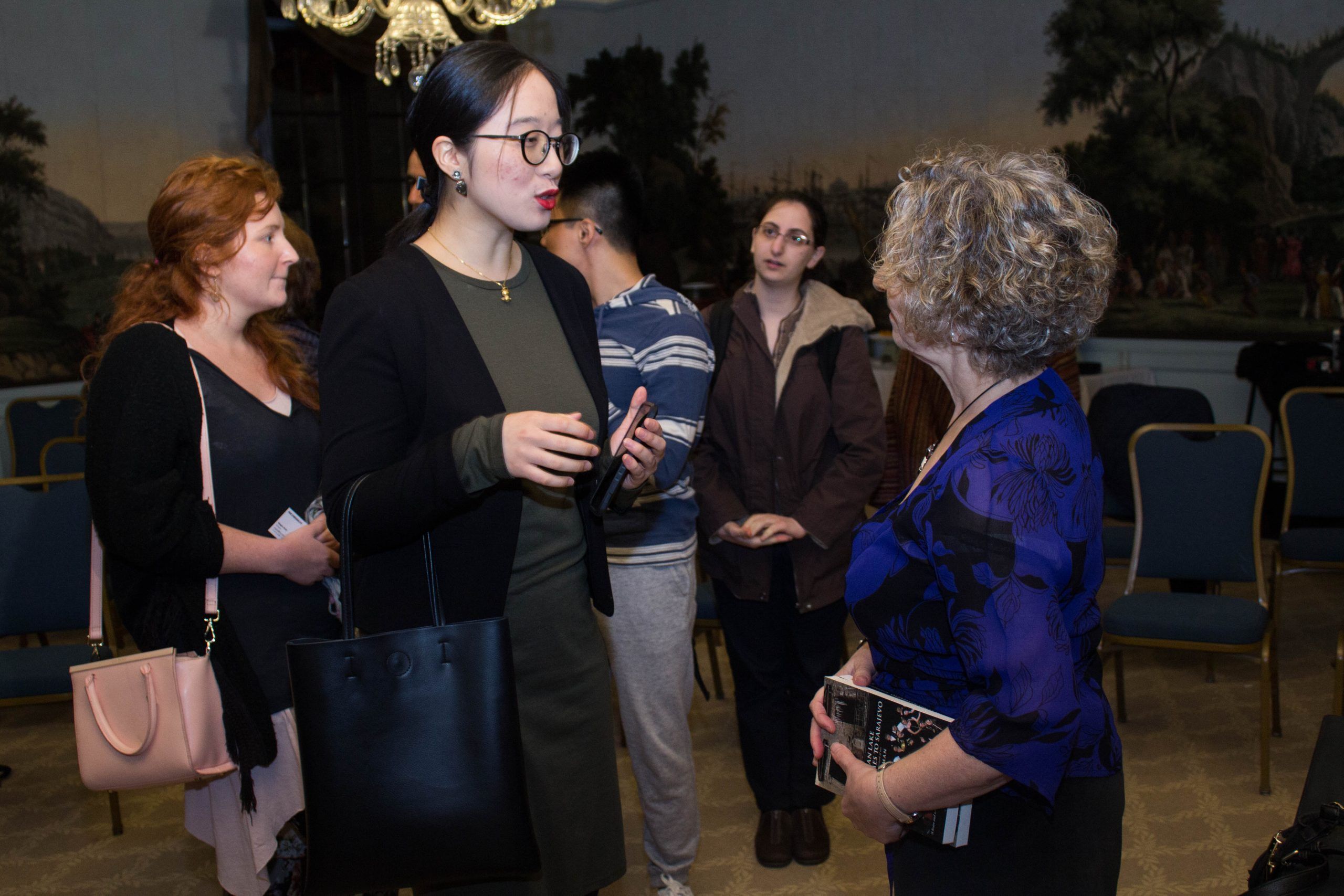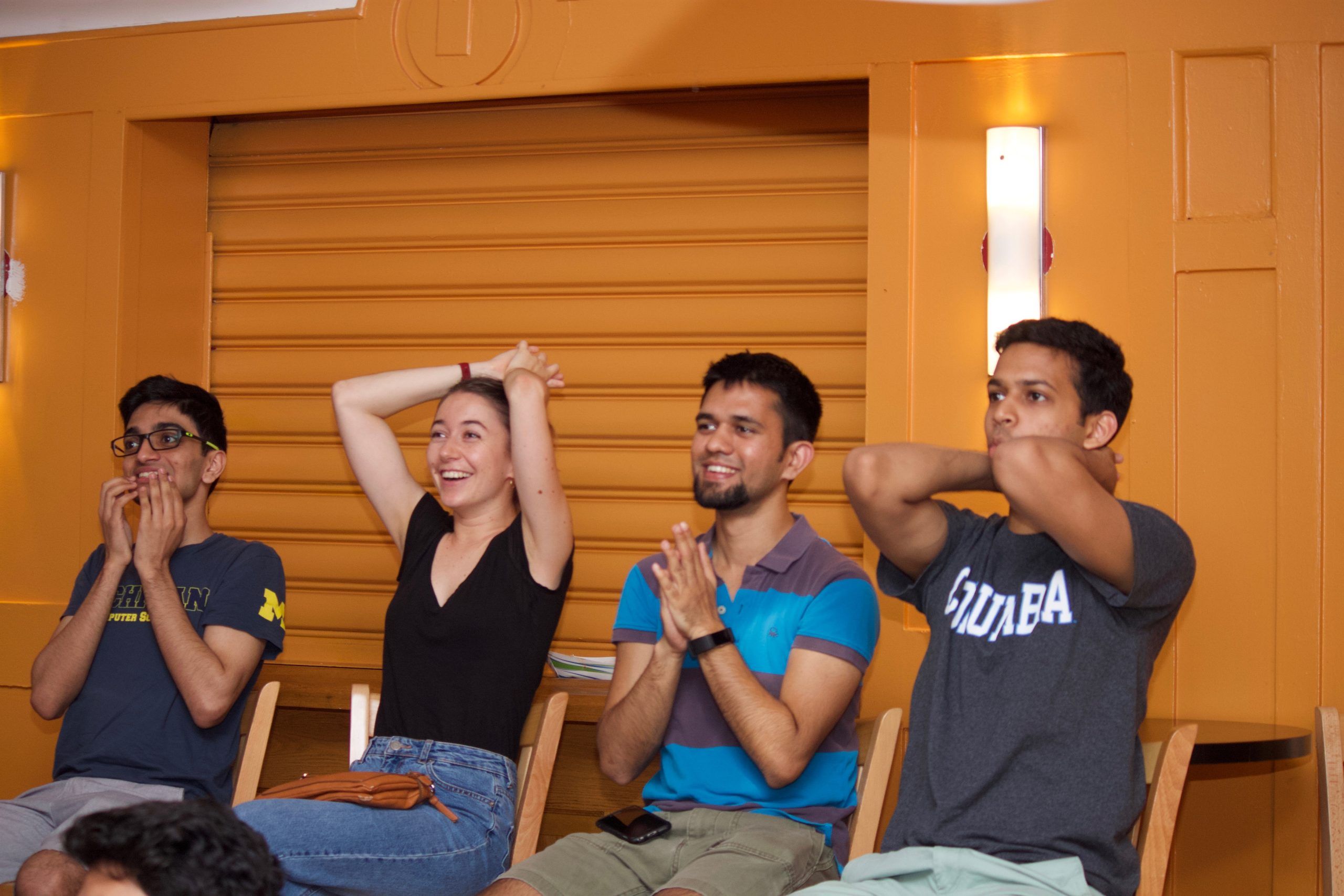Welcome to International House!
Since 1924, I-House has welcomed bright people from all over the world to live, learn and grow together through a transformative experience that prepares them to join and lead the conversations that will change the world.
In addition to safe and comfortable housing within a New York City historic landmark, the I-House Experience offers a unique array of programming and opportunities that foster cross-cultural connection and lifelong friendships.
Through this simple but radical idea, we have built a network of globally-minded leaders who go on to live lives guided by the values of Respect for differences, Empathy for others, and the Moral Courage to act for what is right.
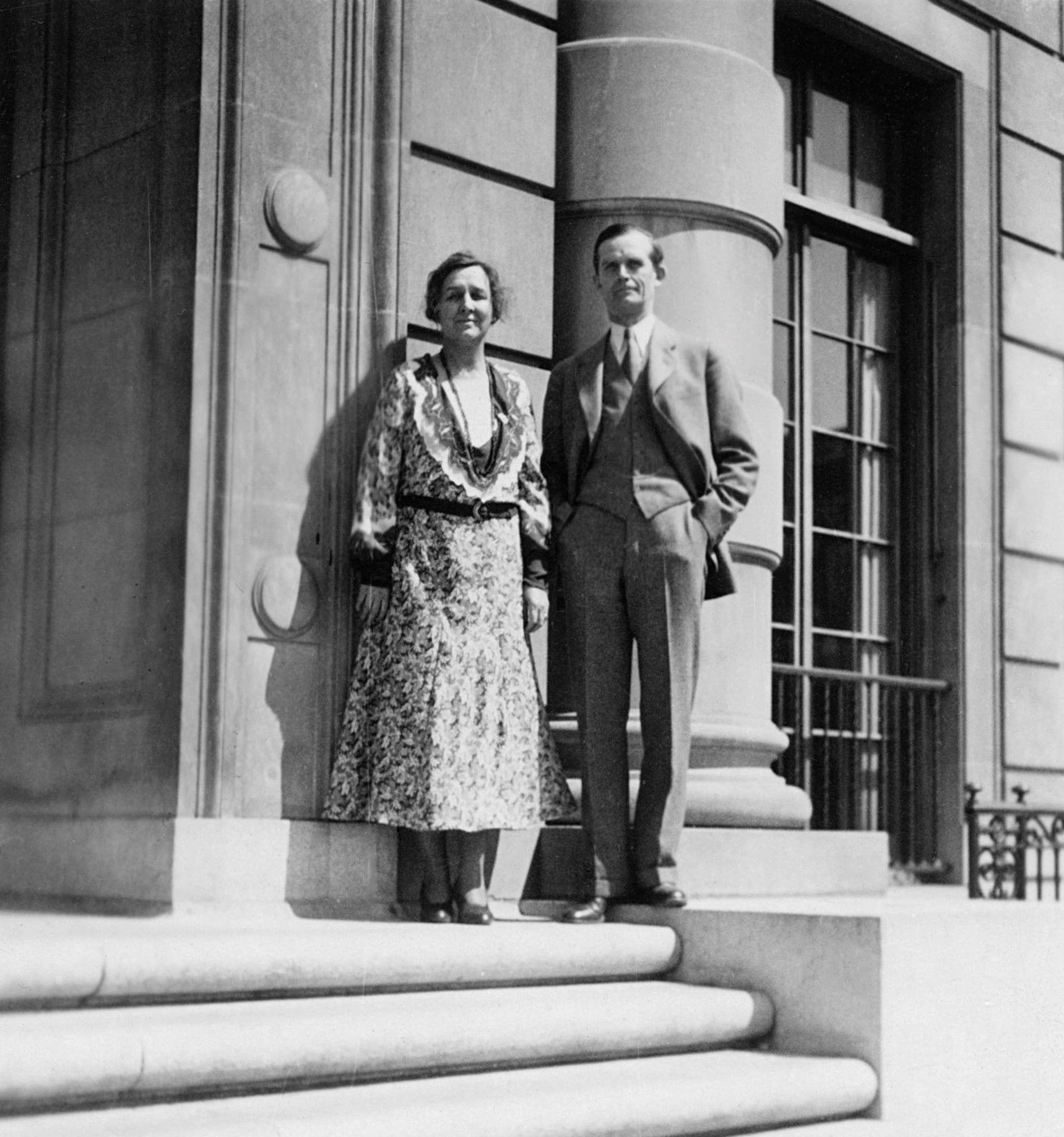
Founders Florence and Harry Edmonds on the steps International House, 500 Riverside Drive, 1932.
Why International House?
International House’s mission is built on the simple yet radical notion that living in a diverse community instills a lifelong dedication to cross-cultural understanding.
As we enter our second century, this idea proves not only relevant, but urgently necessary. Even as technology and media connects us, we are increasingly divided: biased in our own views and experiences, apprehensive of deep conversations, and unable to forge collective solutions to global challenges.
International House exists to bridge these divides.
The House is a microcosm of the world: diverse, challenging, surprising. Through an intentional admission process, we curate an eclectic, interdisciplinary cohort of open-minded individuals who come together at a key stage in life for a crash course in social and cultural intelligence. Whether in the dining hall or at a lecture, residents listen to others, share life stories, question their own views, and genuinely come to understand one another. It is a life-changing experience our alumni carry into their communities, practices, and professions.
To be here is to be open, to be receptive, and to be a part of a supportive community and network that stays with you no matter where you land. The time we are together is relatively brief, but the gifts acquired last a lifetime.
About the House
The House is comprised of two buildings that can house up to 700 residents.
The South building has dorm-style housing with single occupancy rooms and communal bathrooms on each floor.
The North building has apartment-style housing with room options ranging from shared suites with communal kitchens and living spaces to one-bedroom apartments.
I-House plans approximately 10 programs a week, which include leadership workshops, book and film discussions, cultural hours, and more.
Academic Year ’22-’23 Demographics
Represented at I-House are:
84 countries and regions
66 fields of study
36 educational institutions
22 internship and training organizations
Financial Aid & Fellowship Opportunities
Over $490,000 was awarded in financial aid to residents to assist with room fees this year. Roughly 29% of all I-House residents receive financial aid, with approximately 42% of residents that applied receiving something. International House also awarded three residents a full Academic Year of room fees under the Dietrich Bonhoeffer Scholarship award.
Each academic year, Residents are selected as Program Fellows, Resident Fellows, and Peer Counselor Fellows. Fellows learn to draw upon their strengths as intercultural communicators to plan programs that build community and facilitate interaction among Residents.
Resident Region or Country of Birth
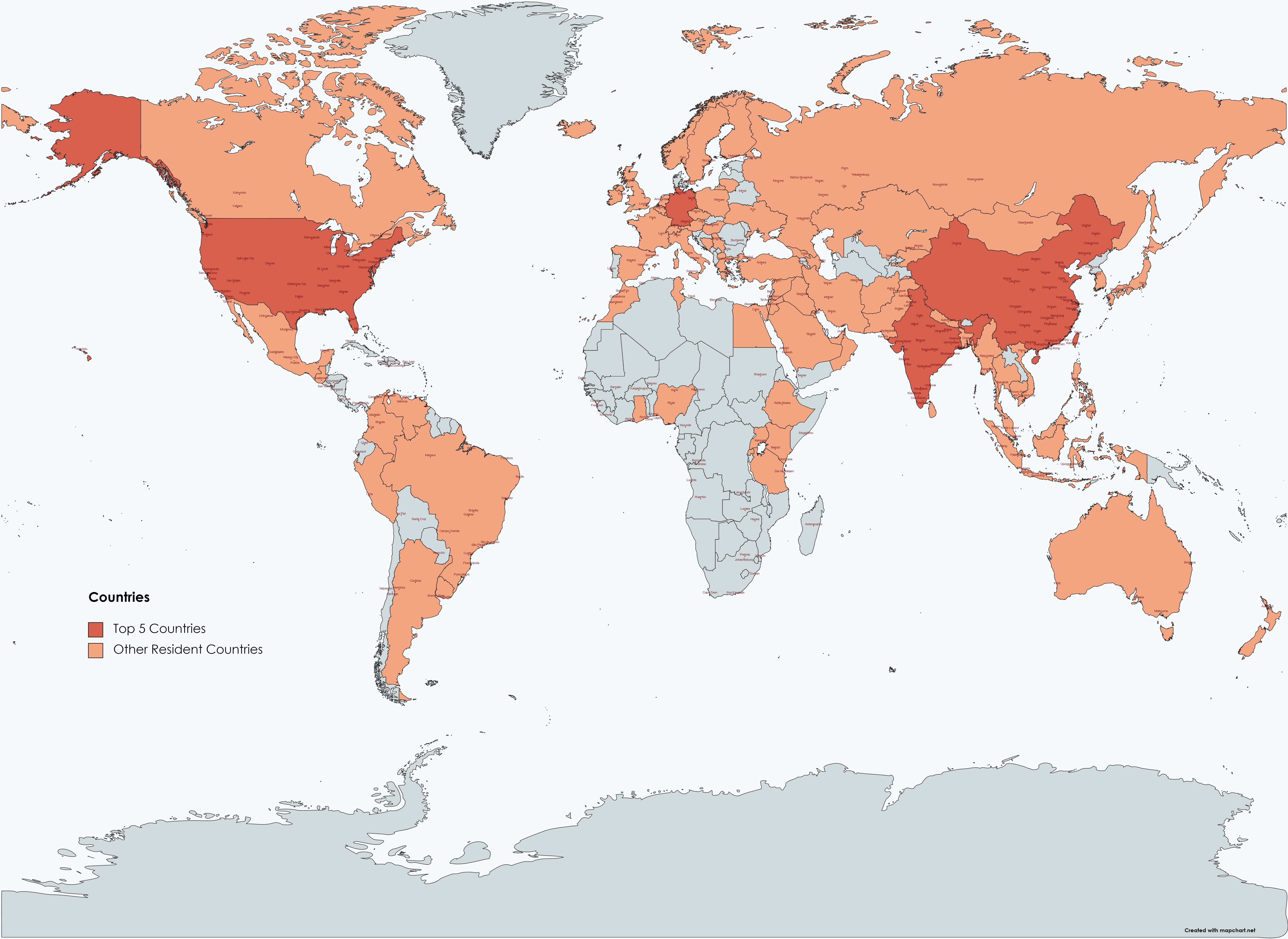
Enrollment Status
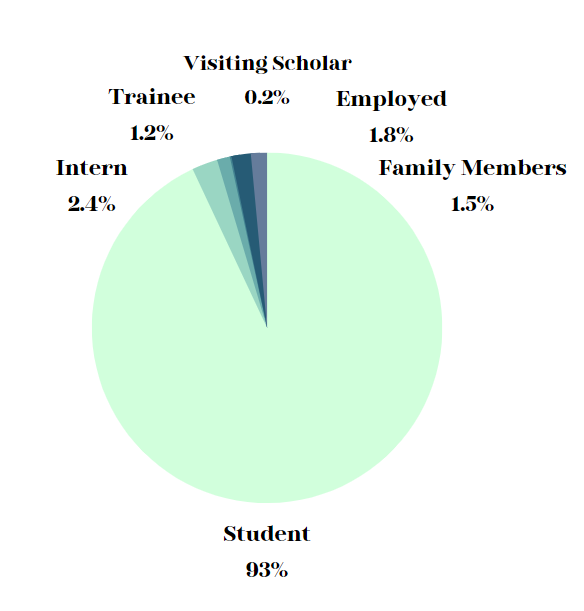
Resident Gender Identity
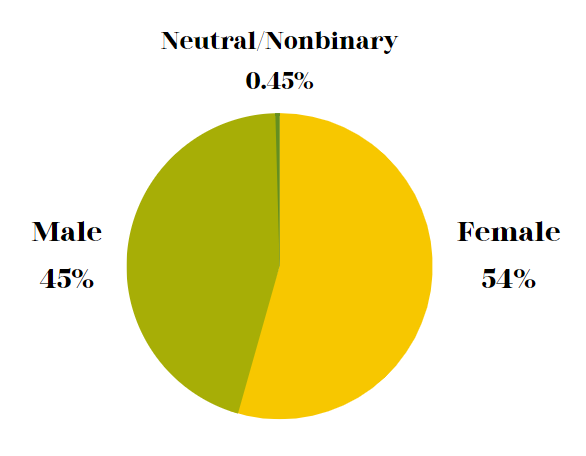
Admission to I-House
To be eligible to live at International House, all residents must be either:
(a.) a full-time graduate student,
(b.) an intern or trainee, or
(c.) a visiting scholar teaching at an accredited university.
Admission to International House is selective. Applicants are reviewed on individual merit, commitment to the International House mission, and a willingness to share their time and talent with the I-House community through its varied programs.
The Admissions Committee selects residents representing as many countries, cultures, fields of study and institutions as possible and seeks approximately one-third U.S. residents. Each year we typically are able to admit 1 out of every 3 applications.
Programs at I-House
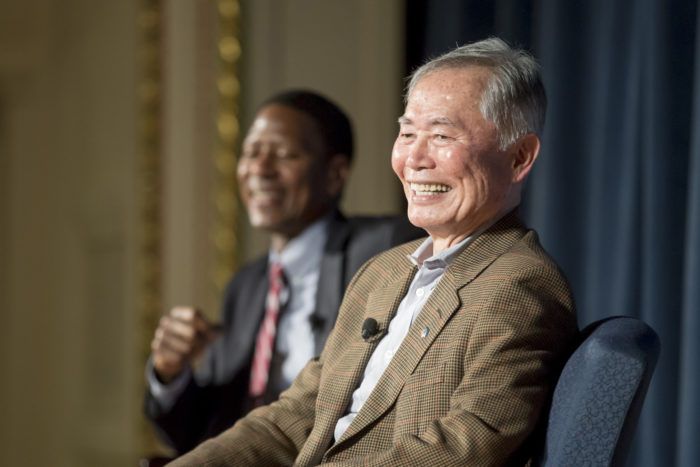
Visiting Speakers
Distinguished speakers representing a wide variety of leadership styles and fields including business, government, arts, science and journalism.
Pictured: Actor and Activist George Takei speaking with former I-House President, Calvin Sims.
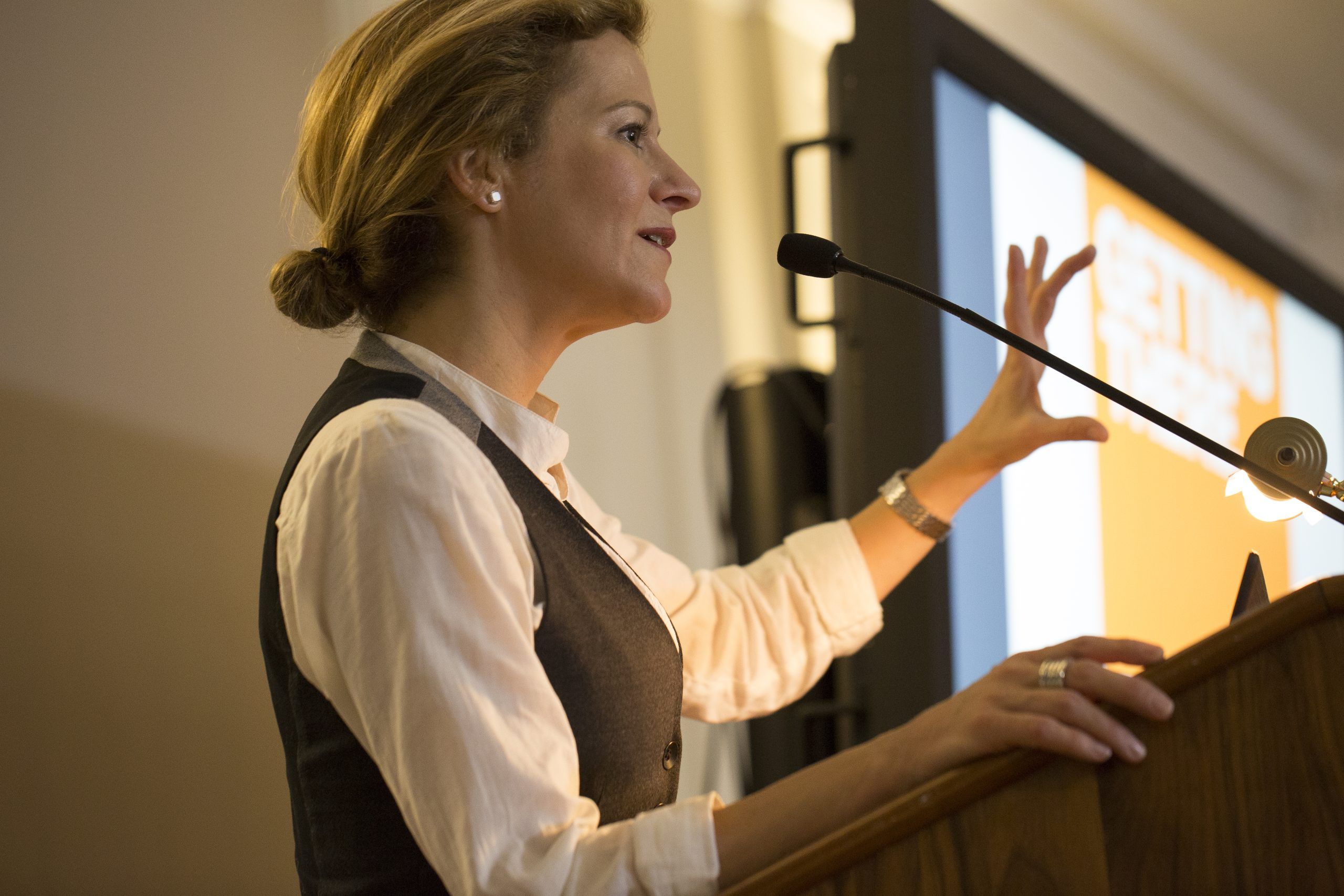
Page Turners
Notable authors addressing issues of culture, identity, international relations and a broad range of other topics discuss their recent works with Residents.
Pictured: Author Gillian Zoe Segal shares her experiences from her book, Getting There.
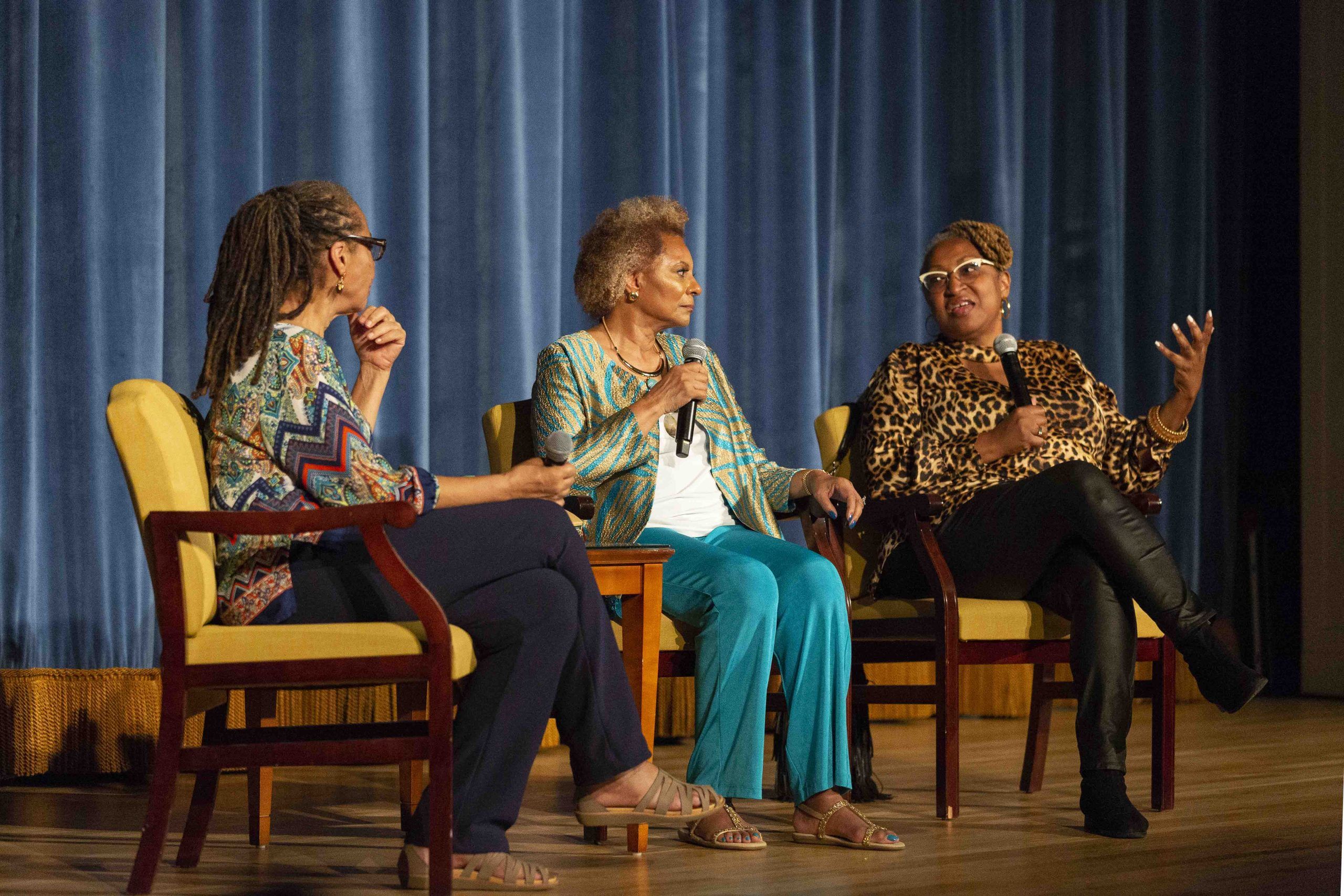
Film Series
Acclaimed documentaries on a wide variety of topics are shown, and attendees get a chance to hear from and interact with some of the people involved with the film. Recent films shown include Our Time Machine; Toni Morrison: The Pieces I Am; When Elephants Fight; Salt of the Earth; and The Trials of Spring.
Pictured: A conversation on The Apollo: The Soul of American Culture with Lisa Cortes (Producer), Leslie Uggams (Actress) and Moderator June Cross (Filmmaker).
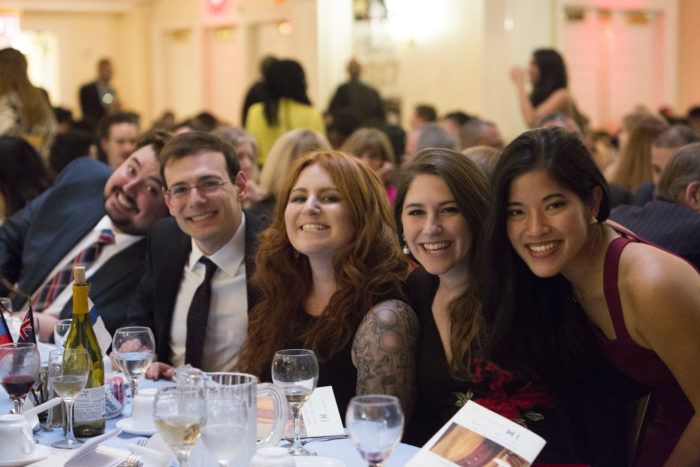
Sunday Suppers
The longest standing tradition at International House, Sunday Suppers are where the the I-House movement began. Our community members dress up and come together to share family-style meals as they hear from captivating visiting speakers and enjoy musical performances by talented Residents.
Pictured: Residents at a recent Sunday Supper.
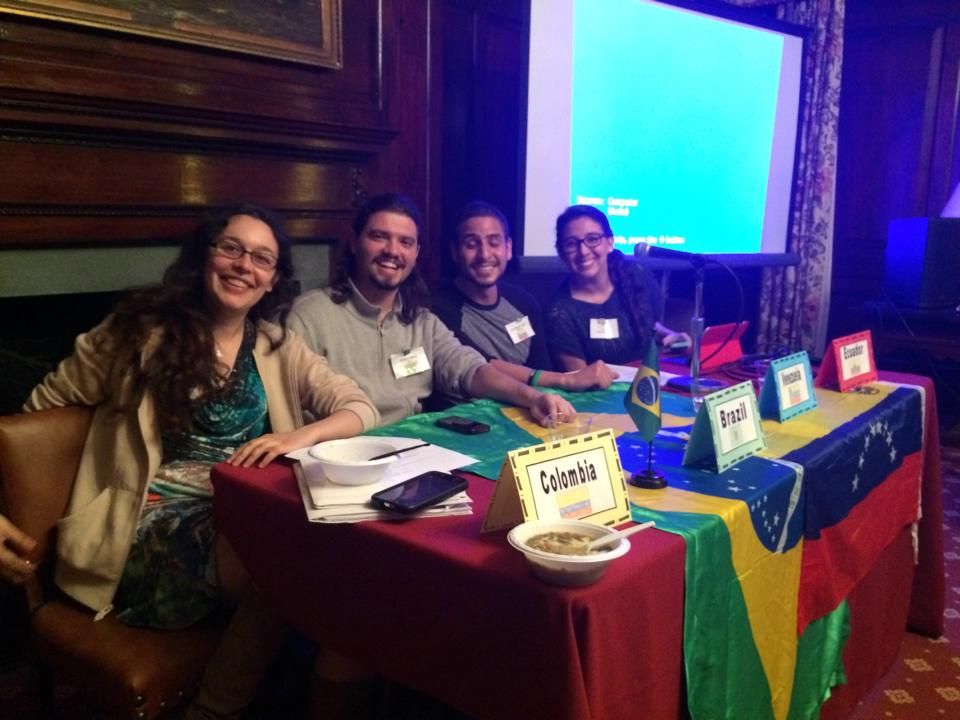
Resident Round Table Discussions
Organized and led by Residents, for Residents, these forums epitomize the spirit of open dialogue at International House. Recent discussions have included the Syrian refugee crisis; the Black Lives Matter movement and the US criminal justice system; diversity in the tech industry; and other timely topics.
Pictured: Residents lead a Latin American Round Table Discussion.
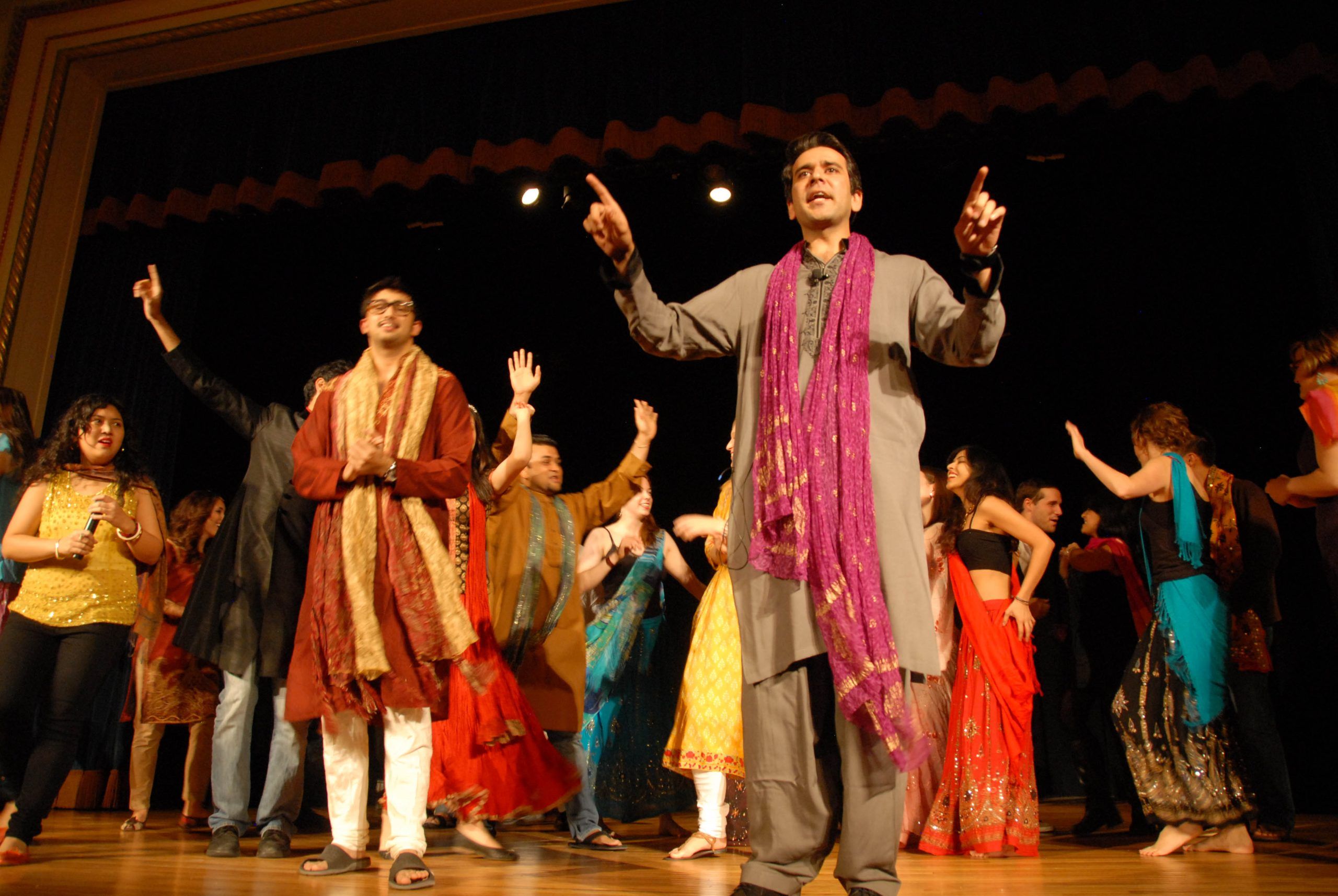
Cultural Hours
Residents produce monthly celebrations of traditional and contemporary life, the arts and the cuisine of various countries and regions.
Pictured: Residents celebrate Punjabi Cultural Hours.
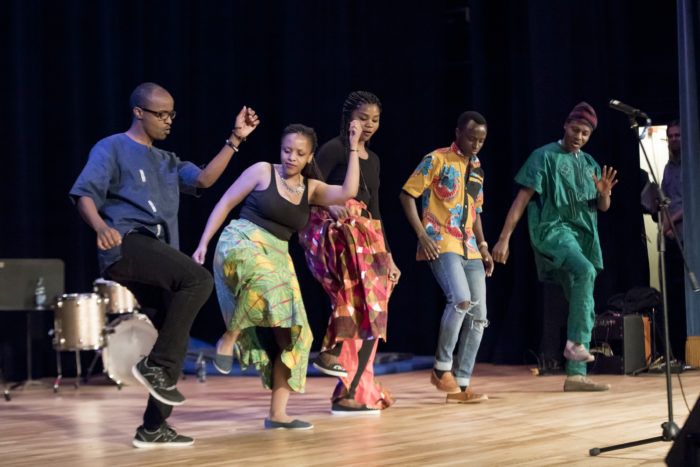
Fall Fiesta
A community-wide festival of words, music and dance from around the world.
Pictured: Residents perform an African dance at International House’s 2016 Fall Fiesta.
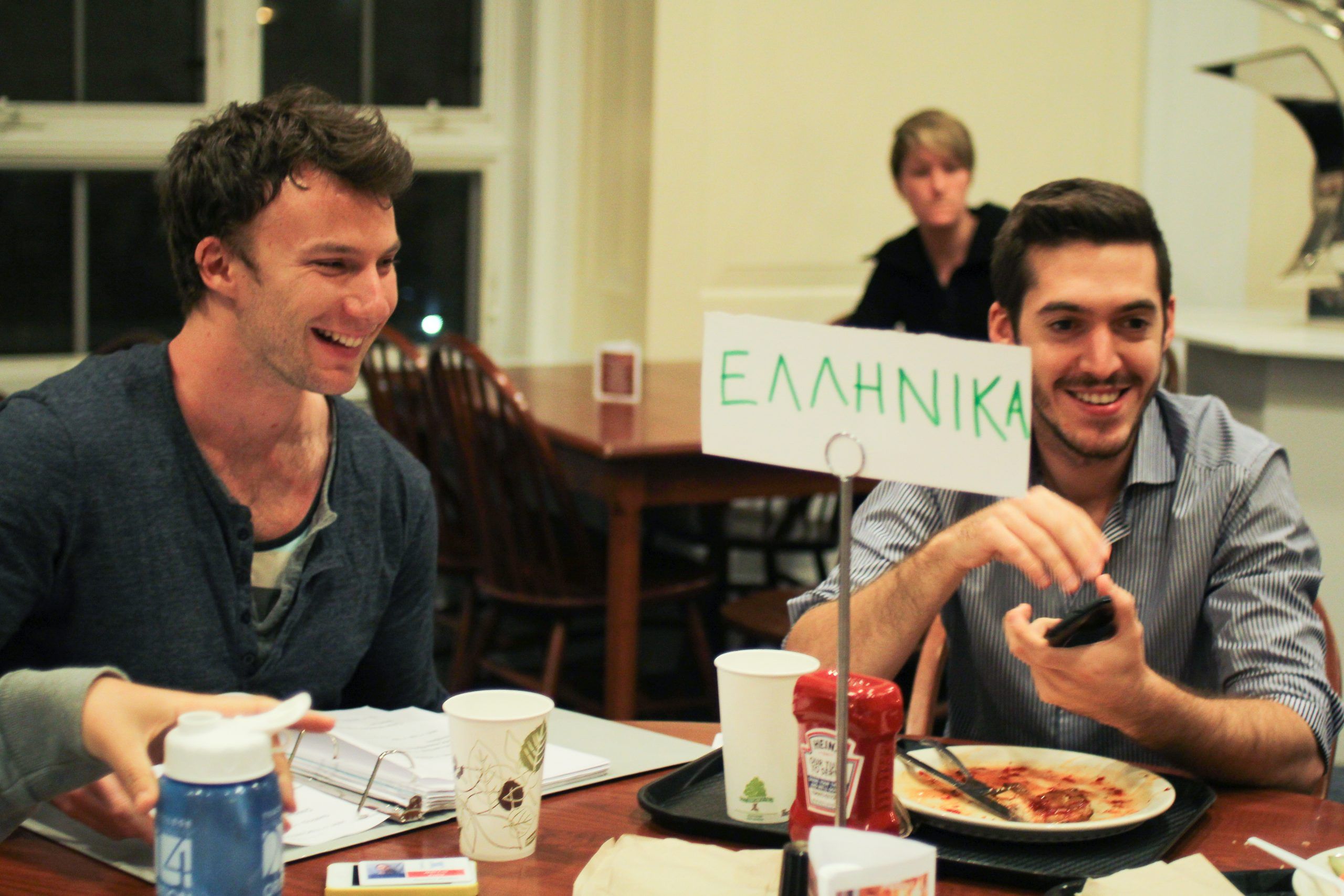
Language Exchange Program
Residents can learn or practice a new language with native speakers, or teach their language to other Residents, all at no cost, at their own pace, and in the comfort of the House they call home.
Pictured: Residents participating in a Language Exchange in 2015.
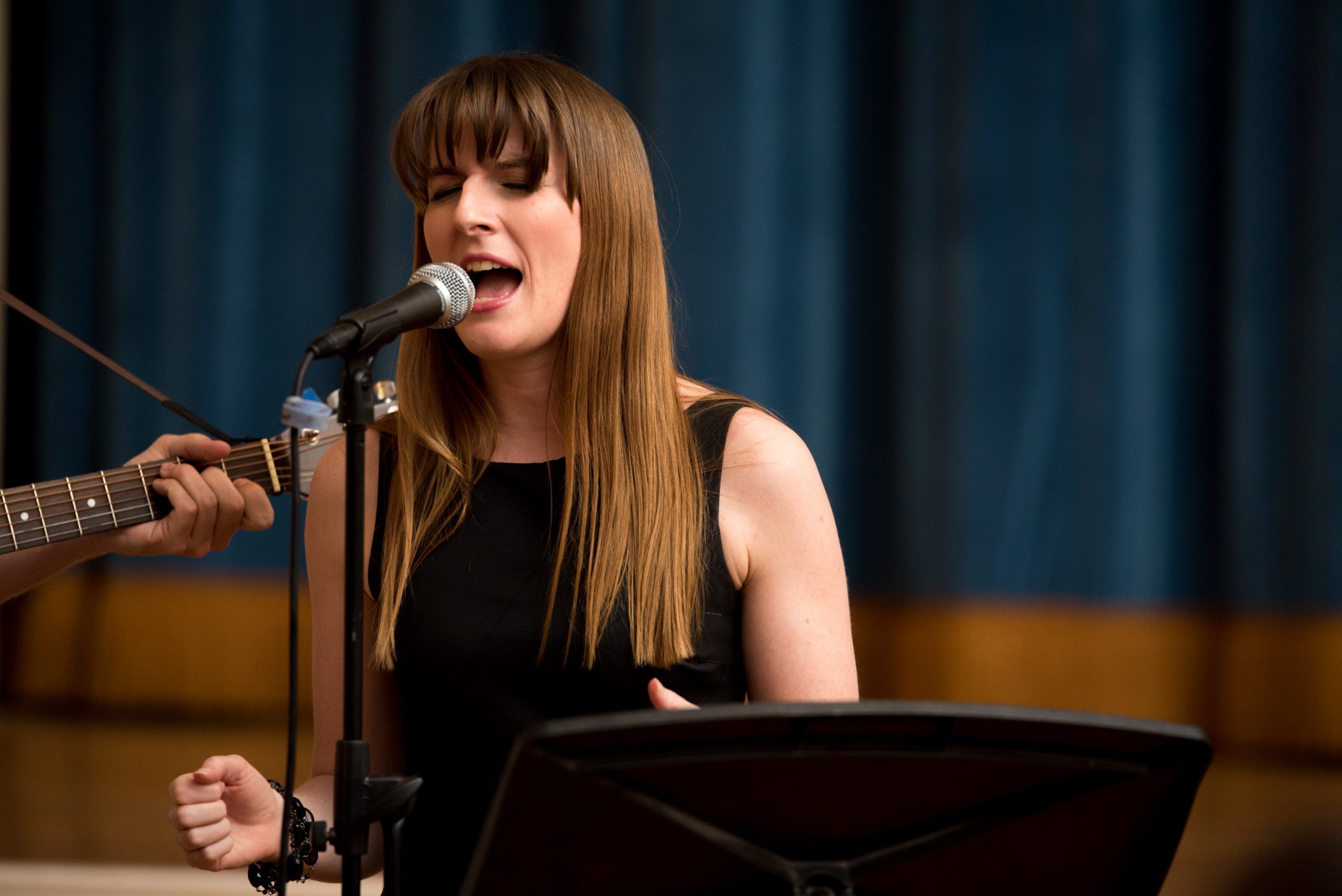
Salon Nights
Residents studying music at Manhattan School of Music, The Juilliard School and the Mannes School of Music collaborate and share the spotlight with talented amateurs in the House in exciting performances of classical, jazz, world, R&B, pop, and spoken word.
Pictured: A resident sings in Davis Hall during a Salon Night
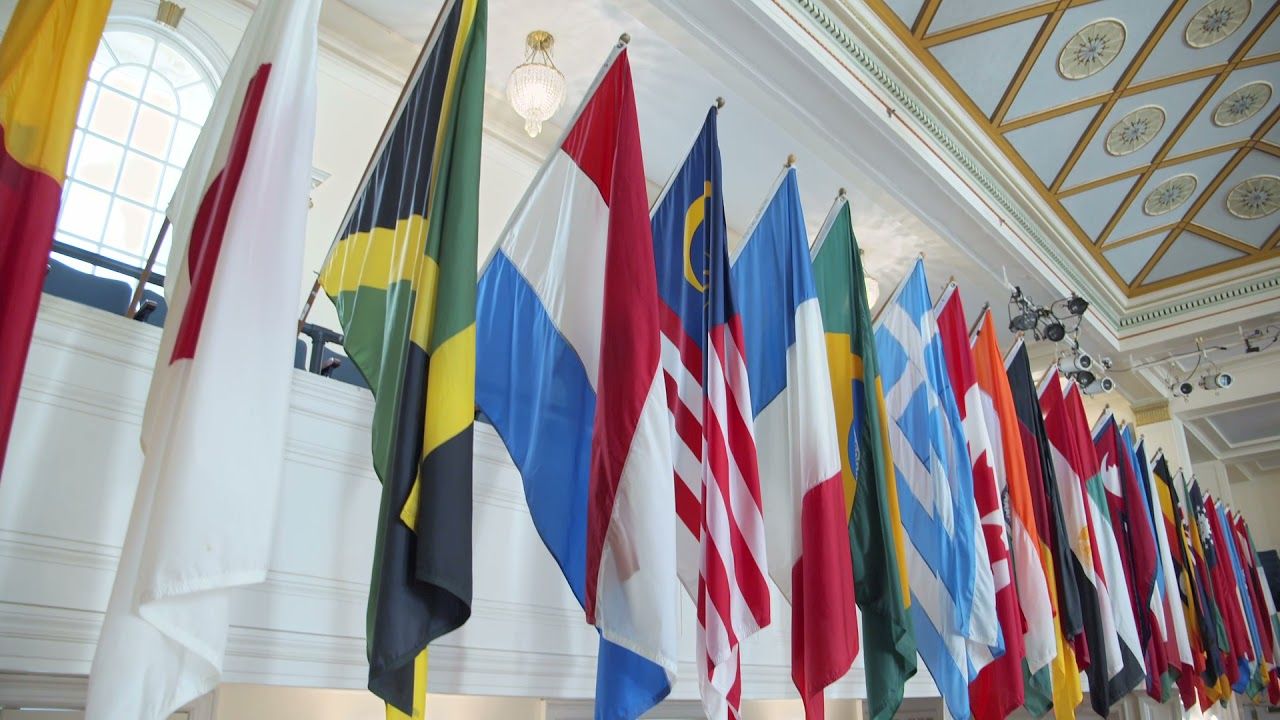
Night of Nations Celebration
The biggest party of the year, this annual spring fling is filled with Resident music and dance performances, cuisine from around the world, cultural exhibits, and more.
Pictured: The flags around Davis Hall, where the Night of Nations Grand Salon Night is celebrated.
Rates & Fees
All rooms at International House are furnished.
These rates and fees are effective at the start of the Academic Year session and are subject to change. Room rates are pro-rated to a daily rate and charged for the number of days of the requested stay.
To view more photos and floor plans, please visit our Room Photo Gallery!
I-House South
South rooms are furnished to include a Twin XL bed (38″ x 80″), desk, chair, dresser, bookcase, lamp, linens, blanket, pillow and towel.
Includes:
Furnished Private Bedroom
Access to Amenities
Communal Bathrooms
Does NOT Include:
Access to a Shared Kitchen
These rooms cannot be shared with your significant other and/or dependents.
Room without a sink
Approx. 8′ x 11′ (2.4m x 3.4m)
Average Monthly Rate: $1,300
Daily Rate: $42.74
Room with a sink
Approx. 8′ x 11′ (2.4m x 3.4m)
Average Monthly Rate: $1,402
Daily Rate: $46.08
Room with a Semi-Private Bathroom
Approx. 8′ x 11′ (2.4m x 3.4m)
Average Monthly Rate: $1,725
Daily Rate: $56.71
Room with a Private Bathroom
Approx. 8′ x 11′ (2.4m x 3.4m)
Average Monthly Rate: $1,875
Daily Rate: $61.64
I-House North
North building apartment style rooms and suites come furnished with a Full size bed (54″ x 75″), desk, chair, dresser, bookcase, lamp, linens, blanket, pillow, towel, a dining table and chairs, stove/oven and refrigerator.
Suites Include:
Furnished Private Bedroom
Access to Amenities
Shared Bathroom
Shared Kitchen
Bathroom and kitchen is shared with 2-3 suitemates. This room cannot be shared with your significant other and/or dependents.
Studios and One-Bedrooms Include:
Furnished Private Bedroom
Access to Amenities
Private Bathroom
Private Kitchen
These rooms can be shared with your significant other and/or dependents.
Small Room 3-4 Bedroom Suite
Approx. 10′ x 13′ (3m x 3.9m)
Average Monthly Rate: $1,721
Daily Rate: $56.58
Medium Room 3-4 Bedroom Suite
Approx. 12′ x 14′ (3.6m x 4.3m)
Average Monthly Rate: $1,788
Daily Rate: $58.79
Large Room 3-4 Bedroom Suite
Approx. 14′ x 16′ (4.3m x 4.9m)
Average Monthly Rate: $1,900
Daily Rate: $62.46
Extra-Large Room 3-4 Bedroom Suite
Approx. 18′ x 20′ (5.4m x 6m)
Average Monthly Rate: $2,227
Daily Rate: $73.23
Studio Apartment
Approx. 16′ x 12′ (4.9m x 3.6m)
Average Monthly Rate: $2,425
Daily Rate: $79.72
One-Bedroom Apartment
Approx. 22′ x 23′ (6.7m x 7m)
Average Monthly Rate: $2,848
Daily Rate: $93.65
Required Fees
-
$70 non-refundable, one-time application fee
-
Refundable security deposit – one month’s room fees based on the room type assigned
-
Dining Fee – $6.50 multiplied by the number of days in your stay, given as a credit to spend as you wish throughout the length of your stay.
-
Upon arrival, you will be expected to complete payment of one semester’s room fees or your room fees for the duration of your stay, whichever is shorter.
Featured Residents
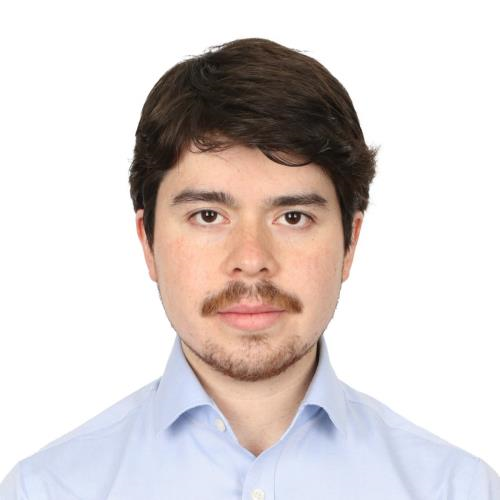
Joaquin Farina, 30
he/him/his
Chile
Masters in Economics and Education
Teacher’s College
Columbia University
I-House North
During high school, I really loved math and physics, so it felt natural to enter engineering. In these subjects, there are sets of rules that you have to follow always; you cannot bend the rules of reality for physics, and you cannot disregard mathematical theorems, or axioms or assumptions, so you work on a very rigid framework. When you get used to that framework, the way that you think gets you to some places that are likely truer than any other way of thought, like a creative path such as literature or art, where the ideas are less concrete.
Since 2017, everything I do is in the field of education. Education is the field I care most about and it’s where I want to keep developing myself professionally and personally. Before coming here, I worked for the Chilean government in the public sector and in academia, so my background contains a mixture of research, qualitative methods, and education policy.
I was a part of Teach for All in Viña del Mar, Chile, where I was a mathematics teacher for two years in low-income schools for seventh graders to senior year students. I still today take a lot of insight of how schools work or how schools can improve from that experience.
Once I’ve completed my program at Columbia, I would love to apply each area of my studies to Latin America or Chilean contexts. Whether I will be working from the US, in Chile or in another country I’m not sure yet, I just know what I want to do in terms of the subject area. But here in New York or in DC there are a lot of NGOs and international institutions that interest me a lot, so I would love to take a look at those places to see if there is somewhere that I can be a part of.
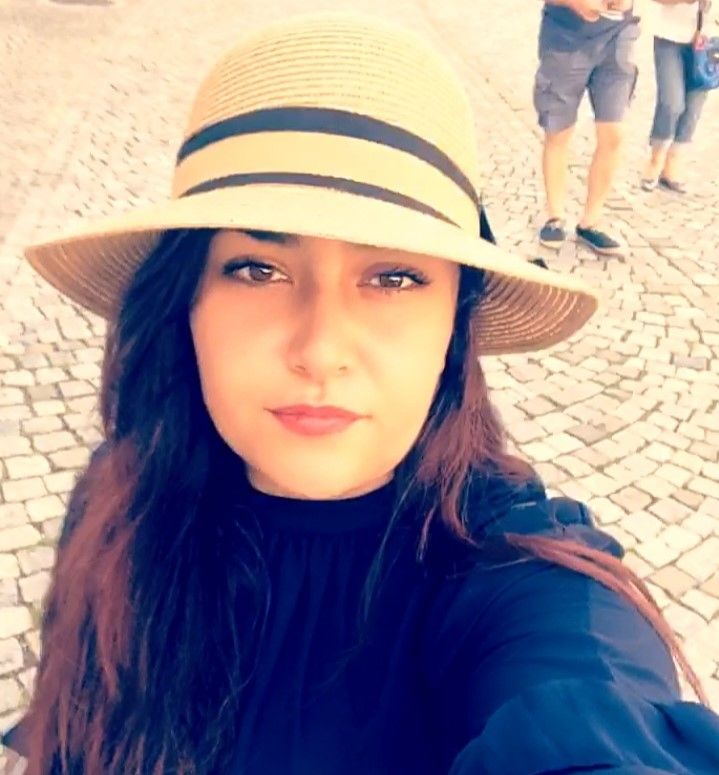
Parisha (Nila) Hakimi, 32
she/her/hers
Switzerland
Business Administration
Business Promotion and Development
I-House South
I was 2 years old when my parents moved to Switzerland from Afghanistan. I speak French and German, plus my mother tongue of Persian and English, and I am also now learning Mandarin. I did my bachelor’s degree in International Management with specification of doing business in Asia for 6 months in Beijing. After my bachelor’s, I did my Masters, also in business but in business administration with a specification of business promotion and development. During my studies, I worked in different roles at various businesses while also helping to establish my family’s business, a family-owned restaurant. From then until now, I hired people to work on the restaurant, I helped develop the business plan, the menu according to social dynamics in the city and competitors. We established it two years ago, and it is now doing really well, without any marketing. We serve Mexican-influenced foods – tacos, burritos – and pizza, and, because my background is in Afghanistan, we also wanted to bring some influence from there. Now the goal is to expand the restaurant and open more in Switzerland. A lot of my studies were about establishing a business, and I could transfer many of my theoretical learnings into practical action.
Once my studies were finished, I began at Switzerland Global Enterprise and started my training. We do export promotion for Switzerland, and I also help as a consultant for Swiss firms that want to enter other countries, so, if companies come from Switzerland and want to establish a business or find partners in America, they come to us, and we help them. What I really love is that we are in contact with really different types of businesses, from small businesses to corporate, and also from really different industries. This gives me insight into a variety of different business models, business types, and people. This is extremely interesting because I can learn so many different things while also supporting these people.
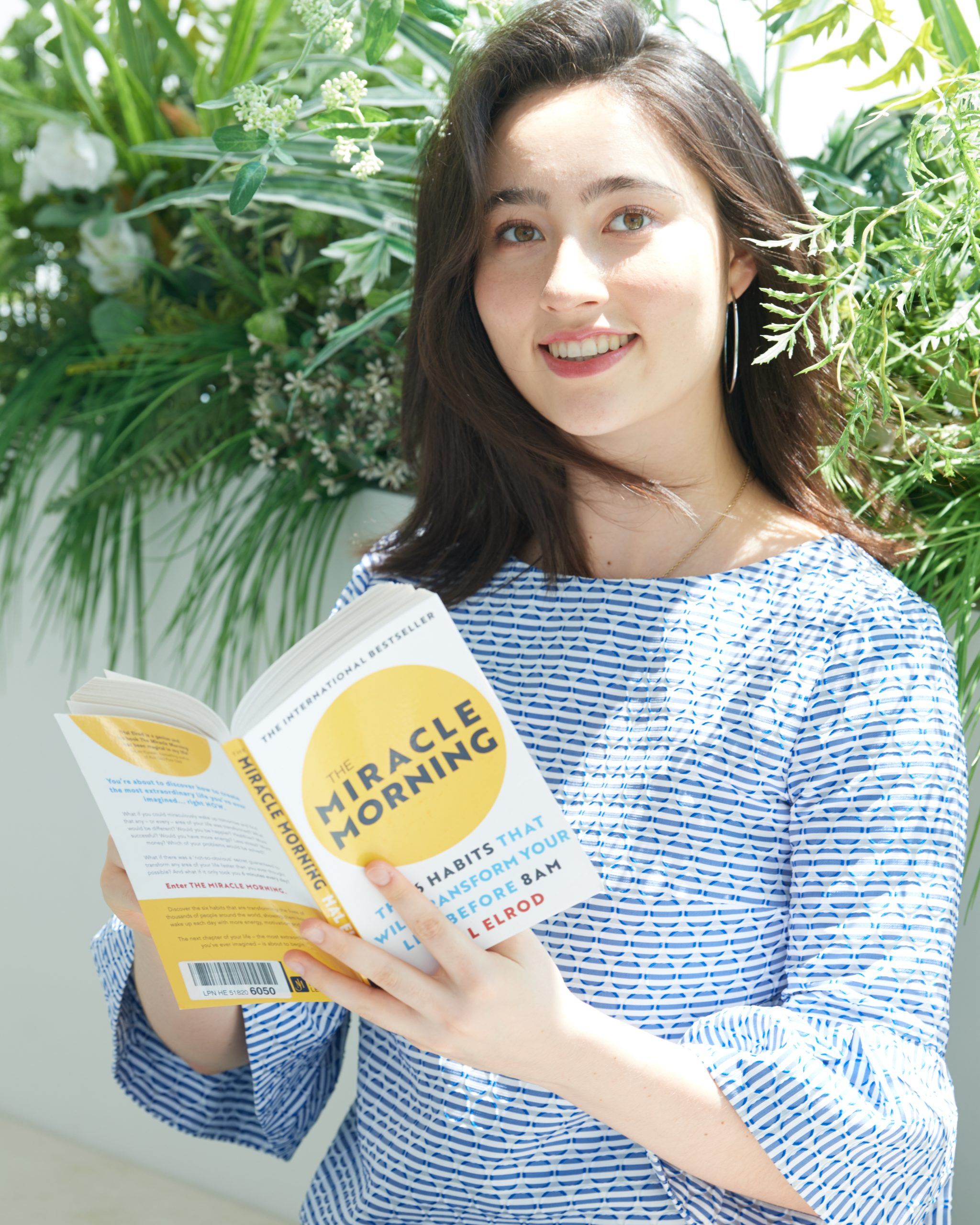
Lea Bochtler, 22
she/her/hers
China/Germany
Masters in Adult Learning and Leadership
Teacher’s College
Columbia University
I-House South
I was in Beijing at an international school my whole life and would spend time in the south of Germany, so I’ve had a pretty western upbringing. Growing up, at a certain point I thought I wanted to play professional soccer — I could play for the whole day and never get tired. But, at the same time, I had really bad habits. I had severe procrastination, which negatively impacted my life. I found myself always leaving work and assignments to the end, and when I was out having fun with friends and family, I couldn’t be present because I would be thinking about what I should have done earlier. When I was working, I wouldn’t be happy because I’d be thinking about how I should have gotten things done earlier. It was this constant feeling of being trapped — and that was just one of the habits I had to break.
I joined my first coaching program and found my first mentor who helped me change a lot of my bad habits. From there, I began my own coaching program which really took off, I think because of my innate desire to be better every day.
My online coaching business helps people break bad habits such as procrastination, social media addiction, sleep deprivation. A lot of things that many college students go through, I once went through too. I love education, but not the standard form of monotone lecturing, rather, I like to coach with enthusiasm on something that has truly changed my life. I came to New York to expand on that, to learn about how adults learn and how the brain develops so I can become a better coach for my students.
Once I graduate from Columbia, I’ll probably go full scale on my business so I can help as many people as possible. I believe in what I do, so that is my main goal. If my business does do very well, I would love to give back to charity. I have a particular soft spot for animals, so I want to contribute to ending animal cruelty.
Check out Lea’s business on Instagram and Facebook @leabochtler “The Time Mastery Coach”!
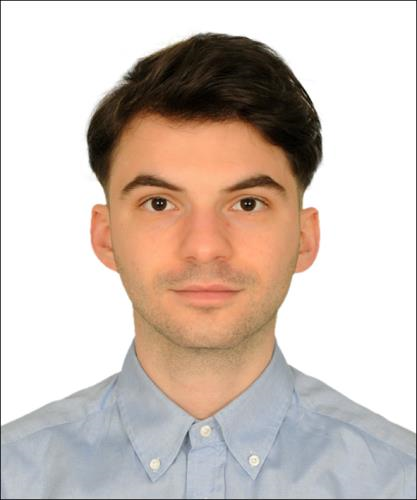
Orçun Doğmazer, 25
he/him/his
Turkey
Masters in International Affairs
SIPA
Columbia University
I-House South
I used to study in Koç university in Istanbul. I double majored in international affairs and economics with minors in business and psychology. During my 4 years of undergrad, I had different kinds of internships – I did finance, venture capital, I worked for a foundation and a newspaper company. The thing that I found that makes me happy are people, no matter what the job is. I confounded a marketing startup and operated that for two years, and that journey showed me that, in Turkey, the policy is not super enabling for entrepreneurs. I realized this policy environment has to change, but I didn’t have much say in governmental affairs because I was only a kid. With my background from my undergraduate education, I decided I wanted to do something with tech policy.
The US is the first place I had been outside of Turkey. I had a prep year my first year of high school and learned English. There was an exchange program to New York, and during the trip we were able to tour Columbia University. Because I am a first-generation college student, Columbia University was actually the first campus I had ever step foot on, and now I’m a student there. Now anytime I walk to campus I remind myself of this, it’s very cool.
Personally speaking — actually, I think this also speaks for all the residents here — I would prioritize the experiences that I have with people over anything else. If you said, “Orcun, you will be staying in this tent for three months, but you’ll have this really lovely community surrounding you,” I would want to give it a shot. I-House not only gives the opportunity to have this wonderful community experience, but the building is beautiful and so historic, I feel very grateful for it.
For the last two years, I have been so dedicated to this journey to get into graduate school, so I have not seriously thought about what I’d like to do next. However, I want to somehow impact technology, maybe as an entrepreneur, maybe on the policy side. I want to enable individuals by connecting them with the opportunities that technology and innovation can offer. This is something I feel passionate about – this lens of sustainable development goals in such regions of need through the tools of technology. But I want to be happy. I’m 25 now, so I will be 27 when I graduate. I want to understand who I am at this part of my life. I want to be able to answer more questions when I look in the mirror by the time I am done with graduate school.
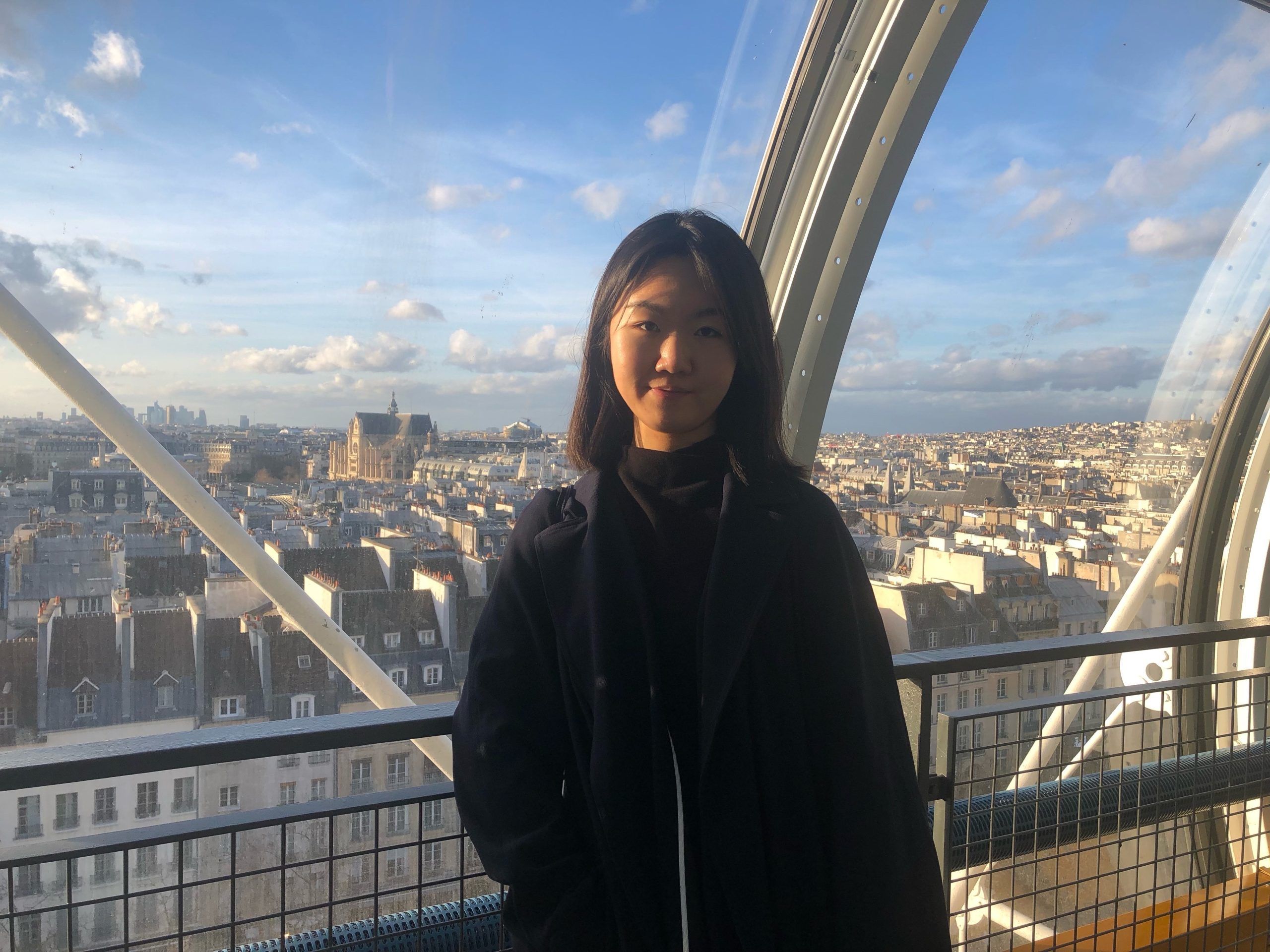
Haila Amin, 20
she/her/hers
China
Masters in Economics and Philosophy
Columbia University & Sciences Po
I-House South
I am ethnic Mongolian, but I am Chinese. I have been living in France, the US and China for most of my life. I have a dual degree between Columbia and Sciences Po in Paris. I just started my Columbia journey, where I am studying economics and philosophy and am planning to graduate with my bachelor’s degree in one year. I realized there is a very different dynamic at I-House because people are more open and happy to embrace different culture; all the residents here love to engage in different activities and engage in different activities outside of campus. It is a really good opportunity to start my chapter at Columbia and my life in New York.
My interests are very nerdy. I spend a lot of time preparing and going to UN conferences. This February, I went to the UN Environmental Assembly, in March I went to the negotiation for biological diversity convention, next week I am going to Sweden for the Stockholm 50, an climate change conference as well, and in July there is a high-level political forum for human dignity. At the Stockholm 50, I will personally deliver an oral statement on behalf of civil society at the UN, so, usually, I spend a lot of my free time working for NGOs and learning about different Human Rights philosophy, environmental conservation, and other political issues.
Speaking of non-academic activities, I thoroughly enjoy learning French. When I joined I-House, the shiniest factor about me was that I speak a little bit of French. When Europeans learned about this, they were very excited to speak French with me. I’ve realized that speaking French is important if you want to be an international diplomat. The language exchange is the I-House program that is very pleasing to me.
In my free time, I listen to a lot of Mongolian music. Because I am an ethnic minority, it is very hard for me to keep my heritage. When I was in France, I lived with a friend from Mongolia, and we spent a lot of time listening to traditional music and thinking about how our culture can contribute to modern society. Our culture is very nomadic, people think it is very old fashioned, but we find it very beautiful, we find a lot of inspirations that can be complimentary to modern society.
The purpose of study abroad is not to stick to your own room, it’s more about talking to each other, learning about each other and to be comfortable around people with different backgrounds. I really enjoy the Language Exchange, and IHouse in general, because it allows me just this.
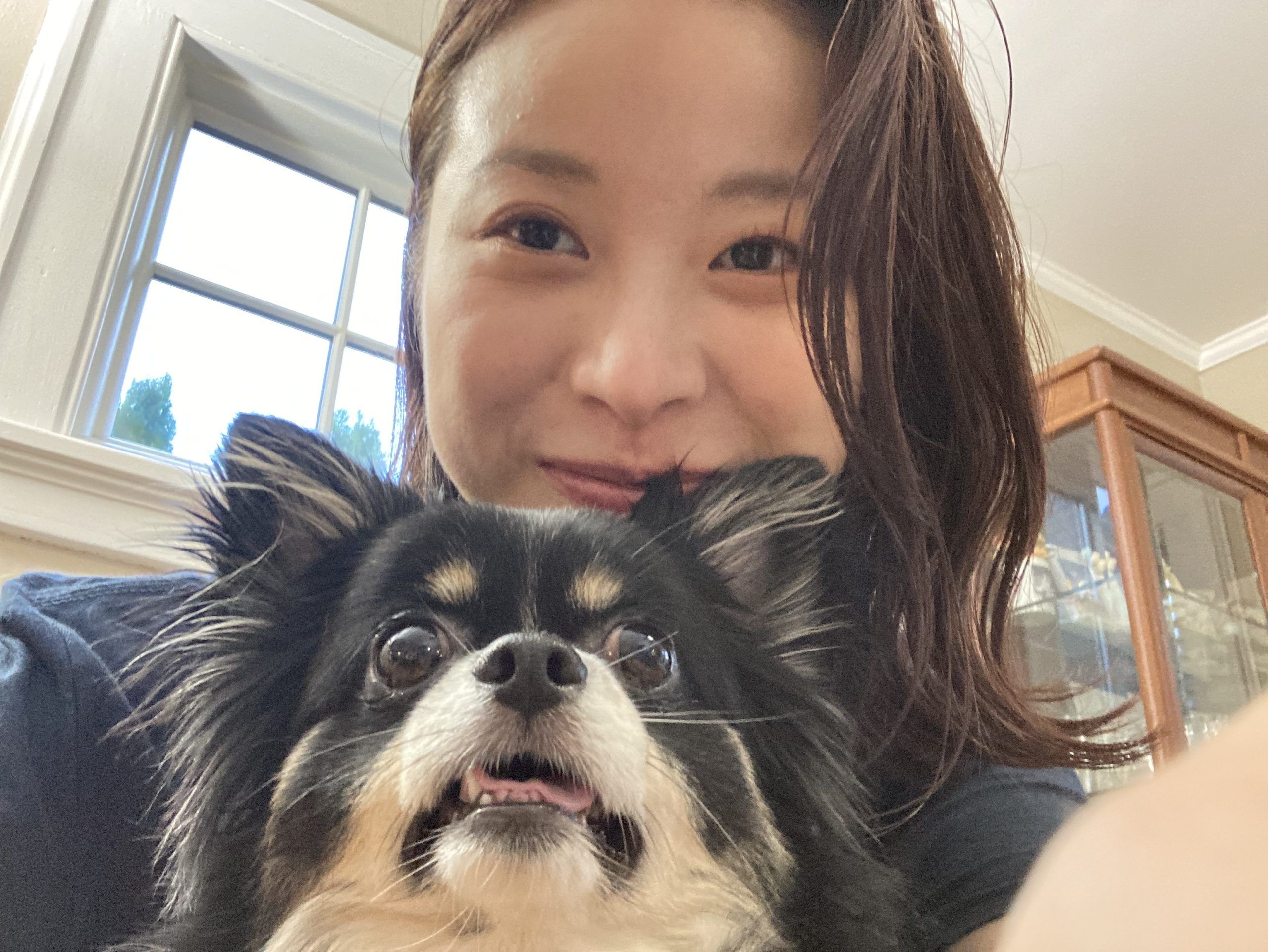
Ryoko Tokuoka, 30
she/her/hers
Japan
Masters in Social Organizational Psychology
Teacher’s College
Columbia University
I-House South
Many of my family (father, grandfather, uncle) are architects. My great-grandfather was a carpenter. Unfortunately, I was not so interested in architecture, but I remember once my father told me that “a building makes people.” This piqued my interest in how the environment affects people and vice versa. Both community psychology and social-organizational psychology look at both sides. When you think about the situation of a sick fish in a dirty pond, clinical psychologists would treat only the fish. What I am pursuing is to understand how to clean the pond and treat the fish at the same time.
After receiving my bachelor’s degree in cognitive psychology in Japan, I got a master’s degree in community psychology in Japan, where we learned a lot of theory. I found that after graduation psychology majors have no opportunity to use our knowledge as it was all very theoretical. I came to the US to study for my second master’s degree to learn how to apply that theory in practice.
I had only ever been to Chicago and LA before moving here, but I find that New York is very similar to Osaka, where I grew up. I am particularly focused on multicultural group dynamics, and I’m interested in how to manage people from all over the world, so, when I learned about IHouse and found that it is not just a dorm but a community, I wanted to become a part of it. My first impression of the House was how gorgeous it was — its architecture and the surrounding area, but also the people living here! Everyone is so friendly and nice; it is beginning to feel like home already.
I have been working at a Japanese company for about 5 years in the marketing department, but I want to do something more related to people as my career develops. What I really want to do is enrich people’s lives by supporting them from the outside and inside. I believe that would eventually lead to the prevention of mental health problems.
Take a Tour of the House
International House throughout the Years
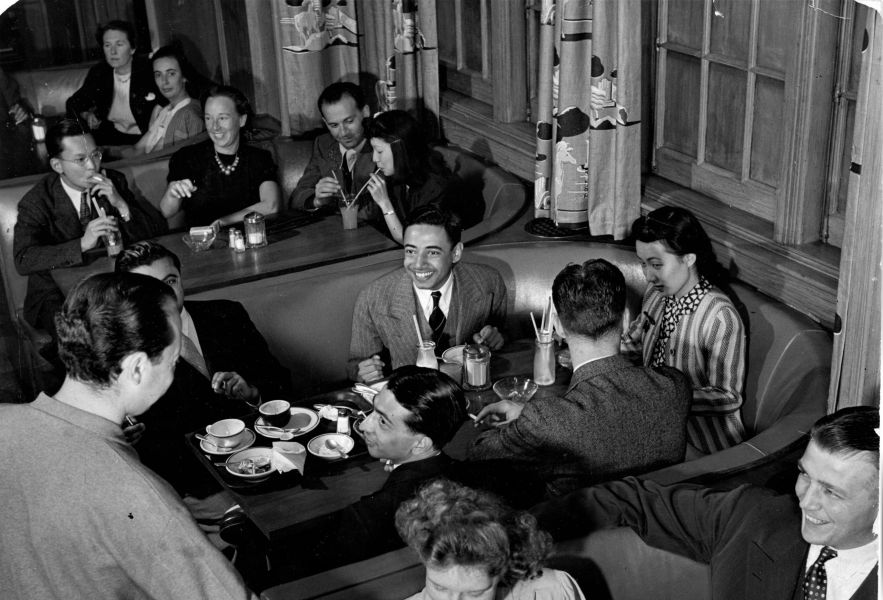
Waffle Wing, 1940s
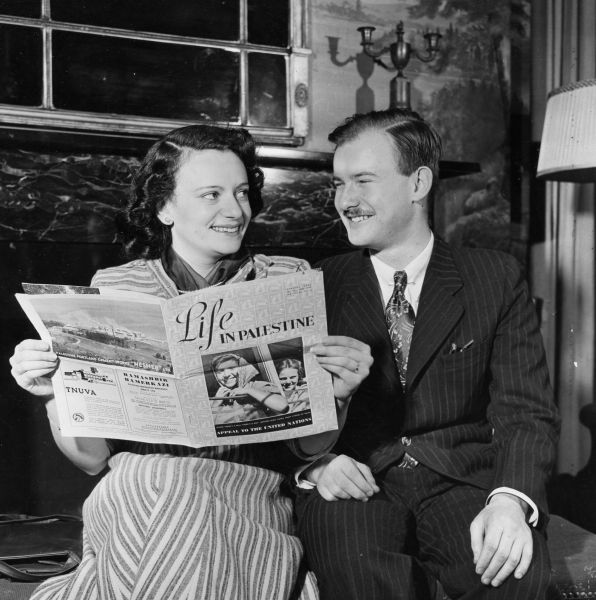
Residents, 1940s
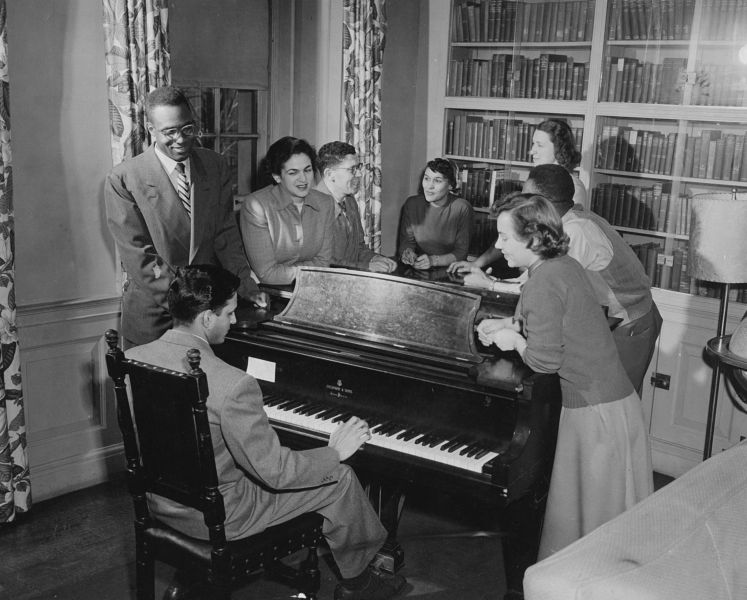
Residents, 1950
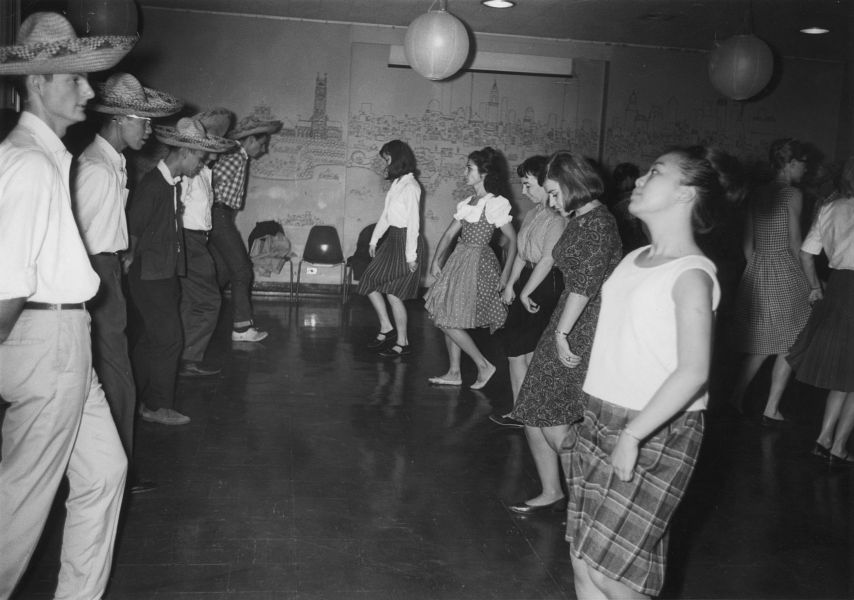
Performing a folk dance, 1965
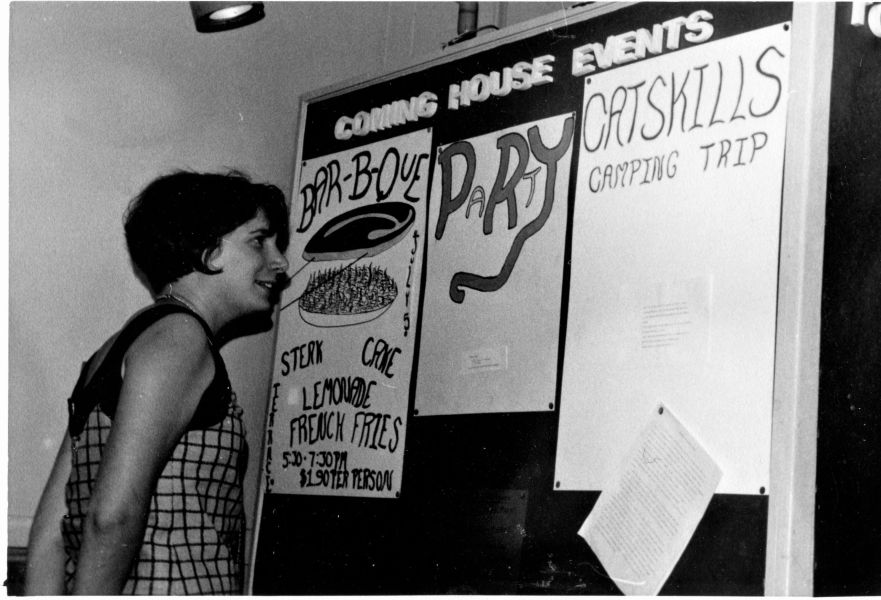
Program Board, 1967
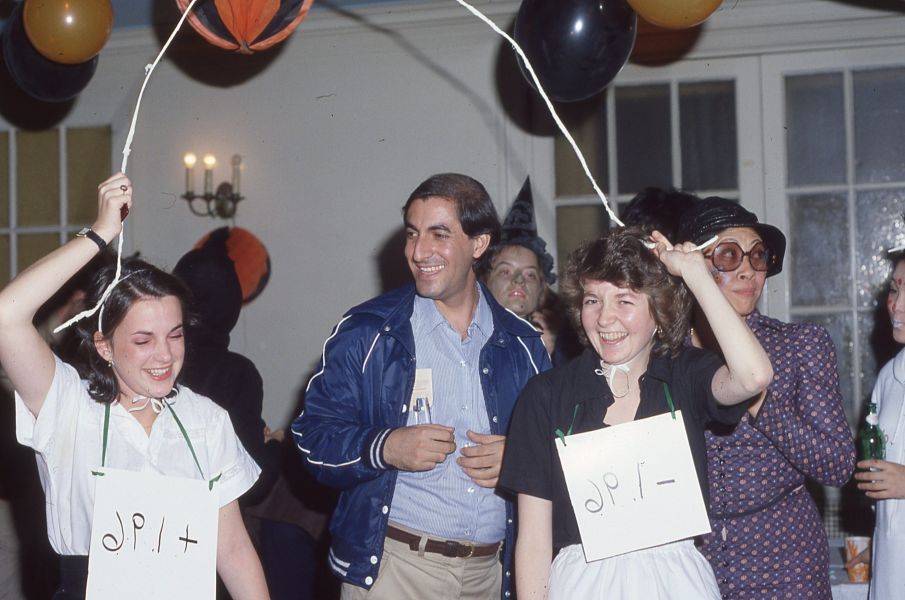
Halloween, 1978
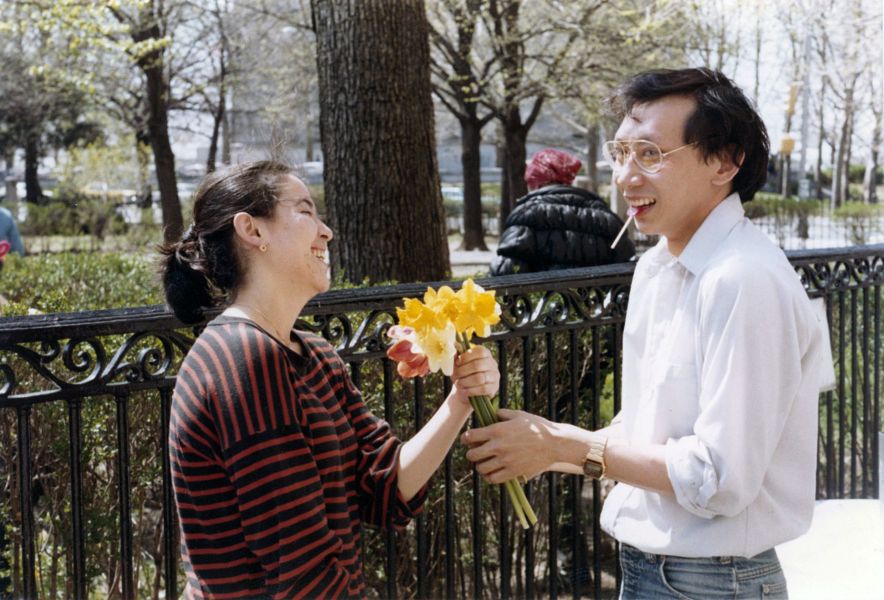
On the O’Neill Patio, 1981
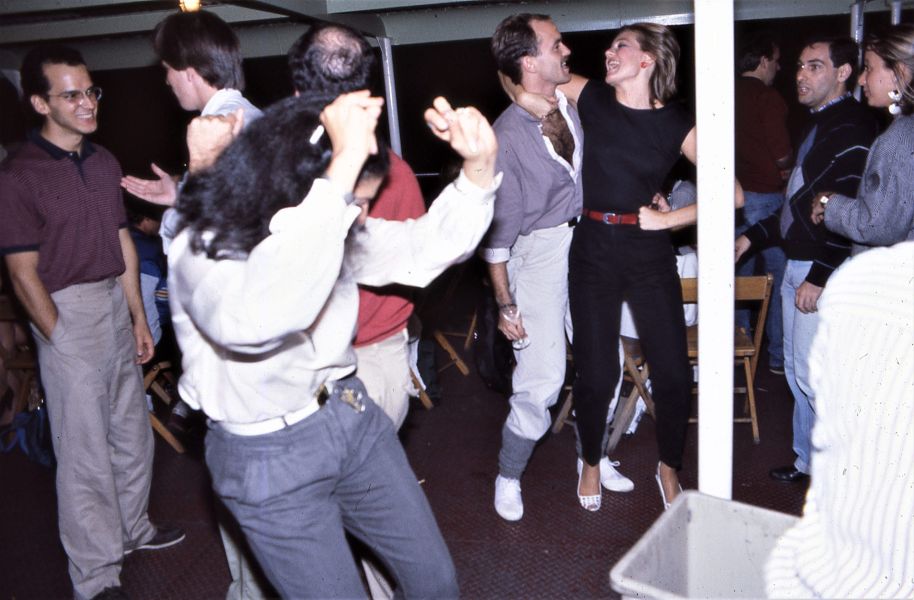
Residents dancing, 1984
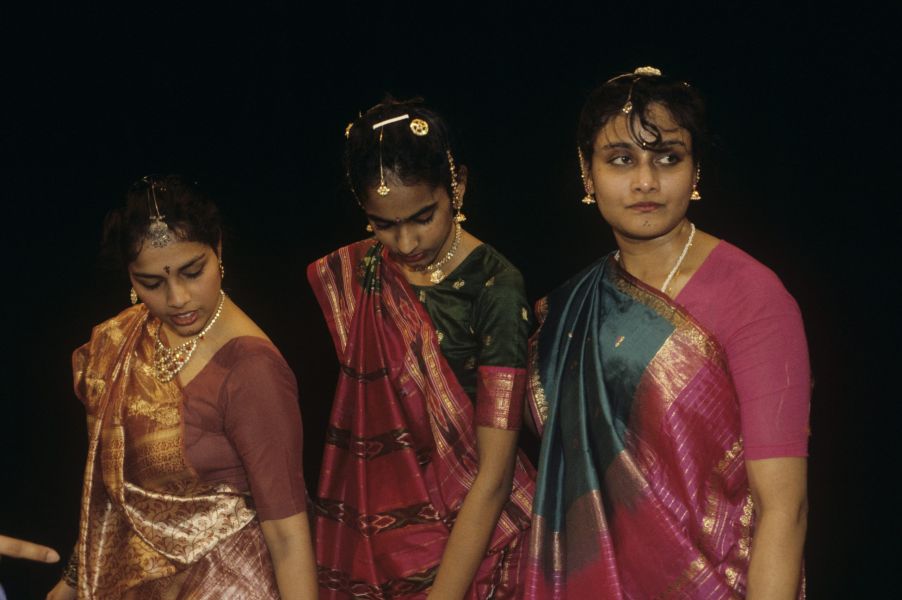
India Cultural Hour, 1993
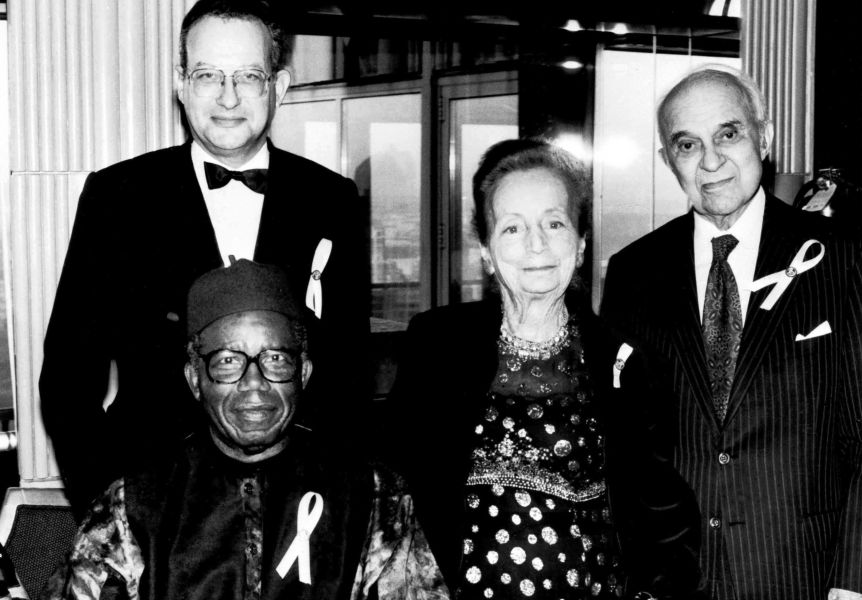
Chinua Achebe, Kathryn W. Davis, David J. Sainsbury, and Wassily Leontief, 1995.
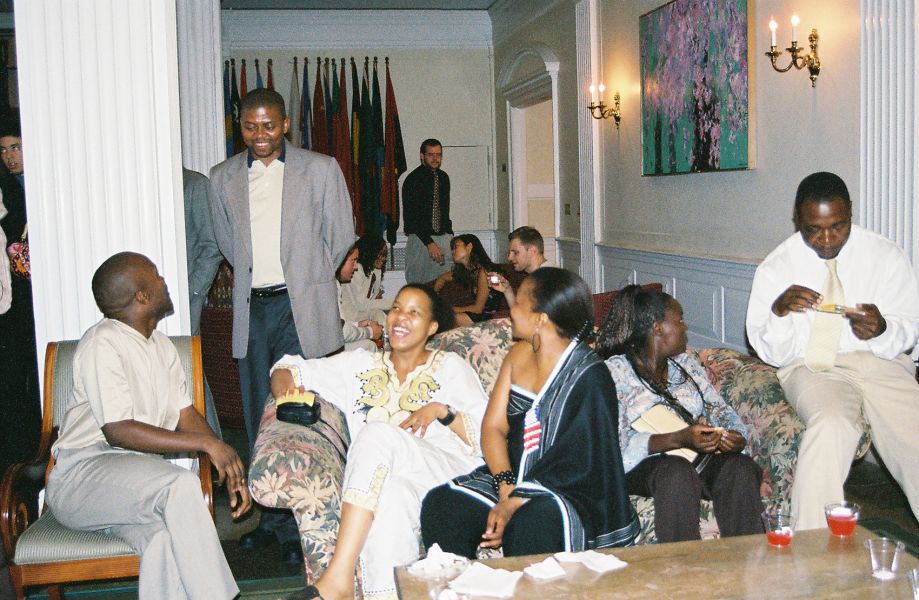
Get-together in the Main Lounge, 2004
- Waffle Wing, 1940s
- Residents, 1940s
- Residents, 1950
- Performing a folk dance, 1965
- Program Board, 1967
- Halloween, 1978
- On the O’Neill Patio, 1981
- Residents dancing, 1984
- India Cultural Hour, 1993
- Chinua Achebe, Kathryn W. Davis, David J. Sainsbury, and Wassily Leontief, 1995.
- Get-together in the Main Lounge, 2004
